Away from Home Virtual Exhibition
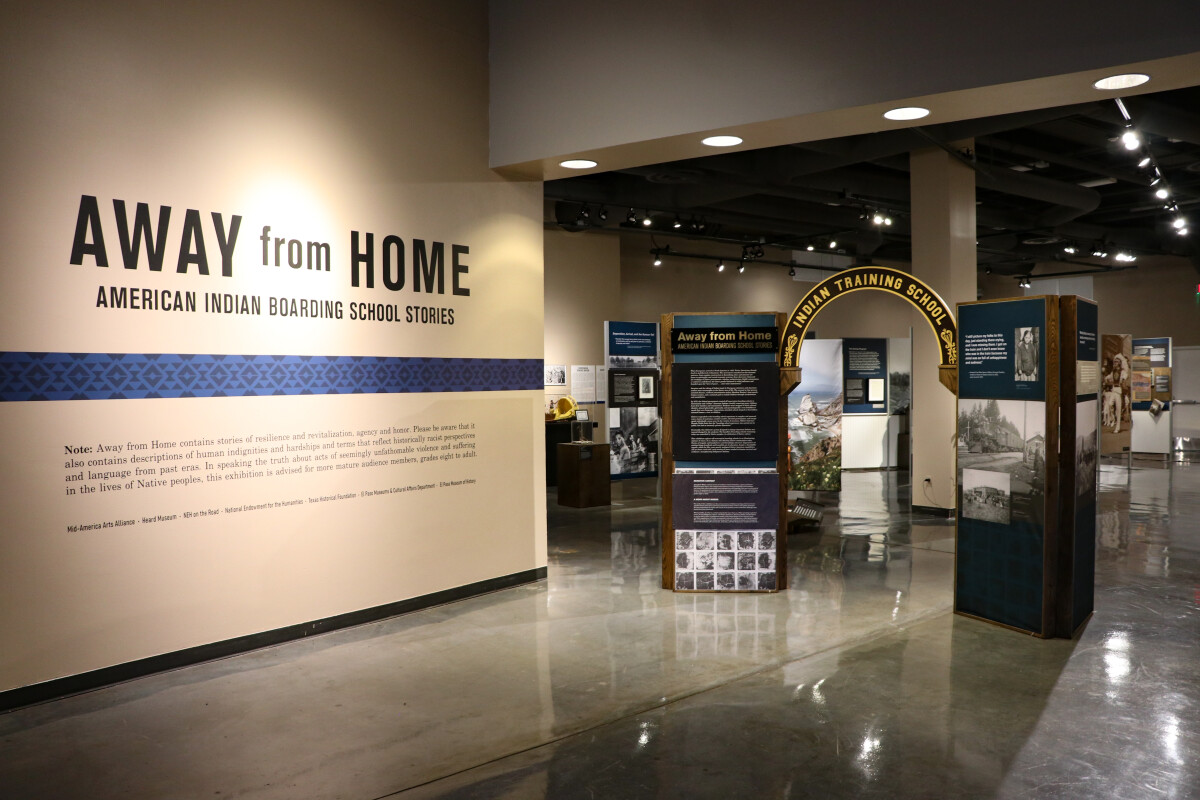
Away from Home Virtual Exhibition
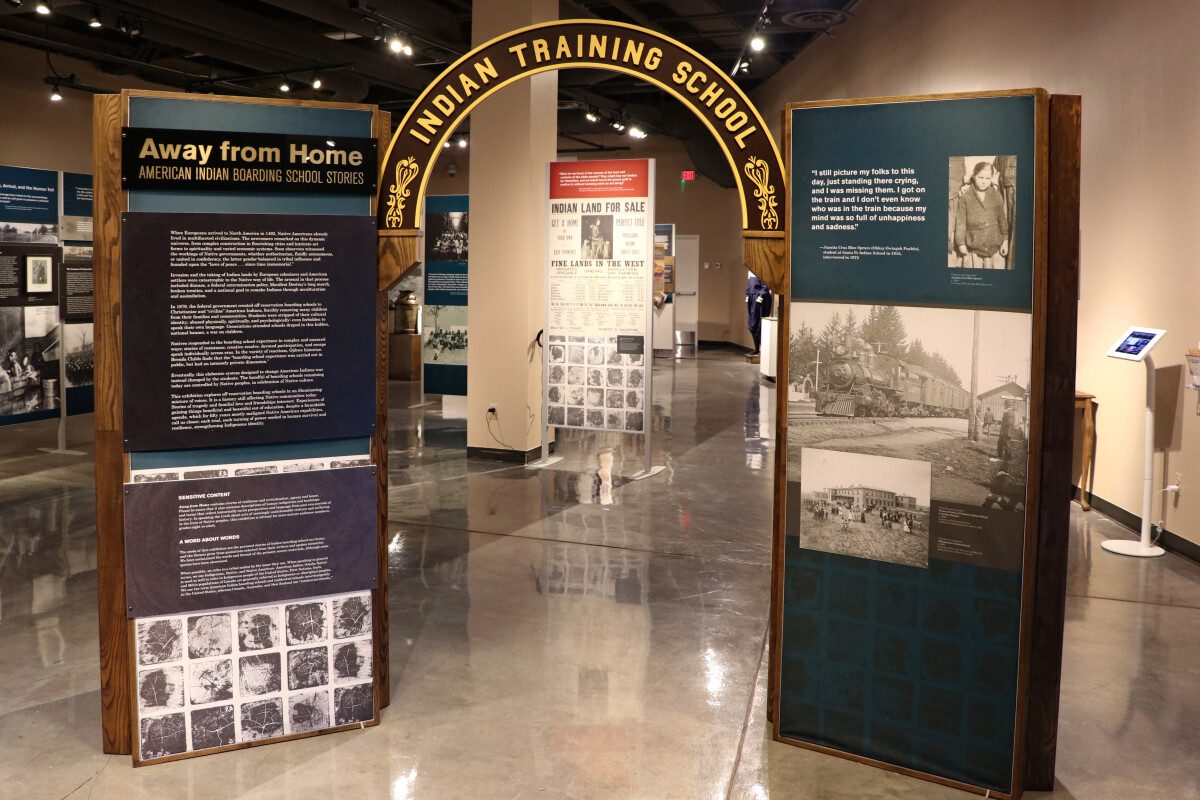
Away from Home Virtual Exhibition
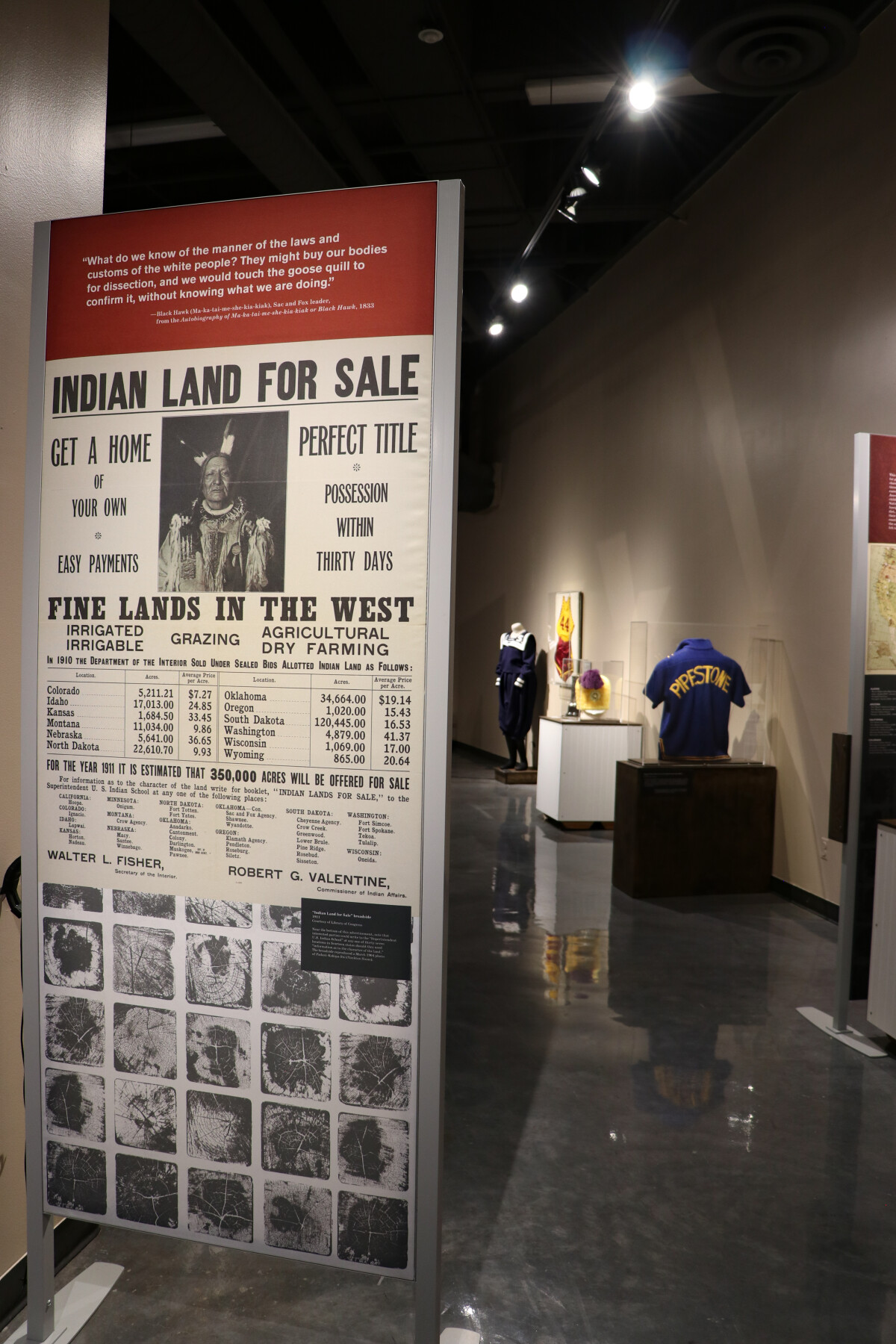
Away from Home Virtual Exhibition
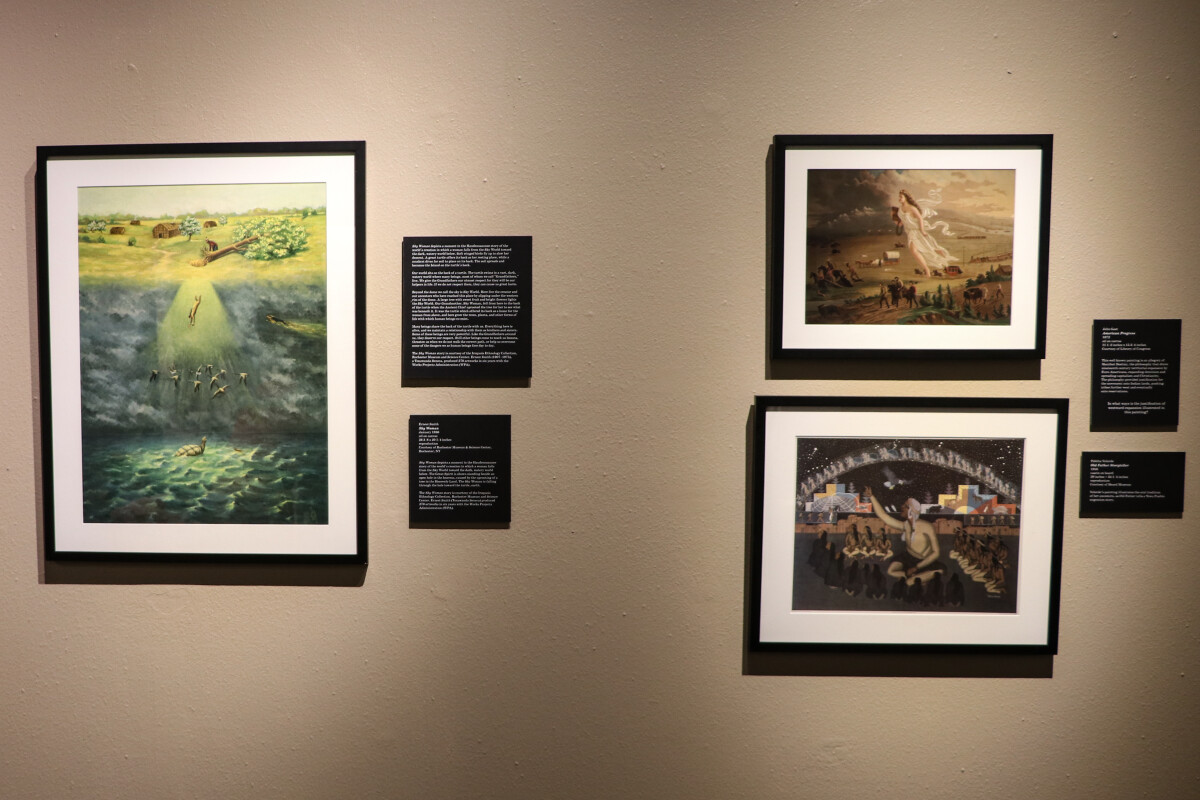
Away from Home Virtual Exhibition
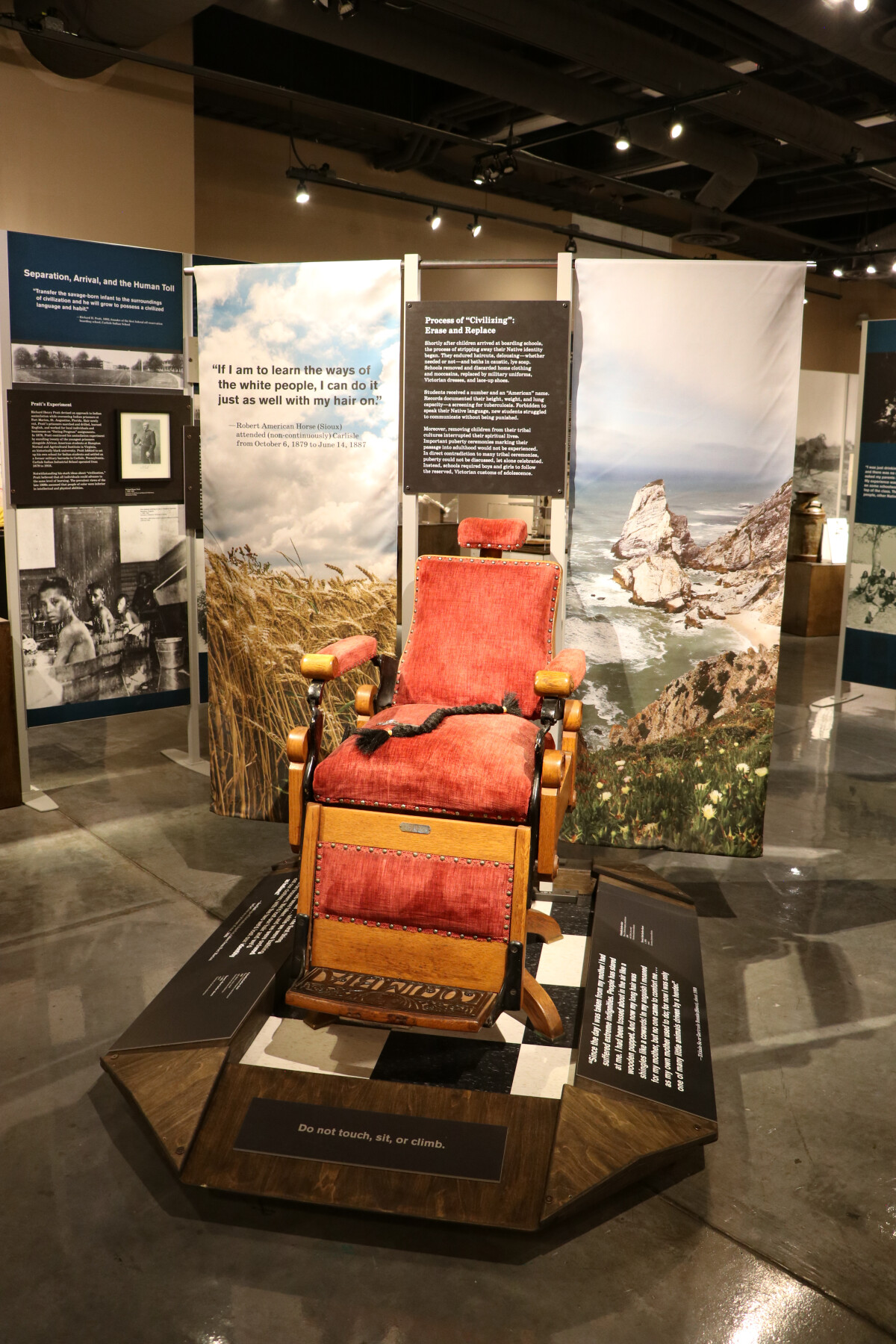
Away from Home Virtual Exhibition
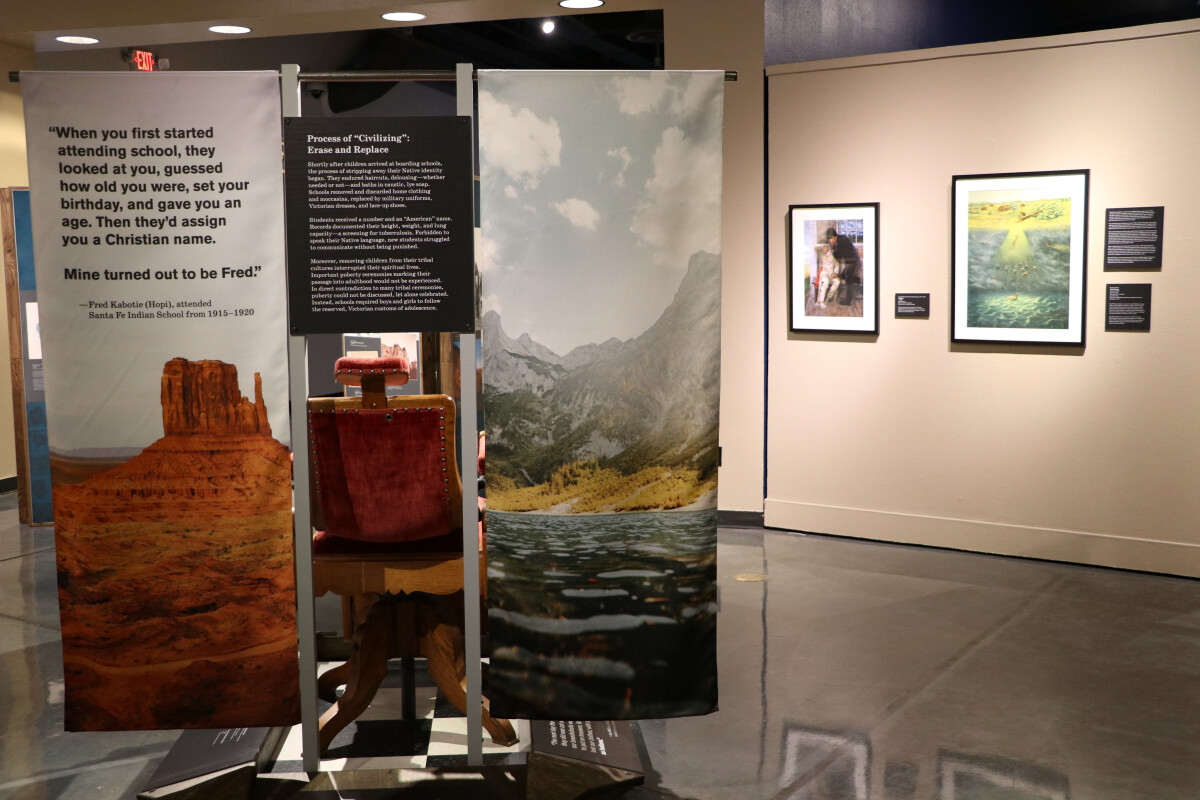
Away from Home Virtual Exhibition
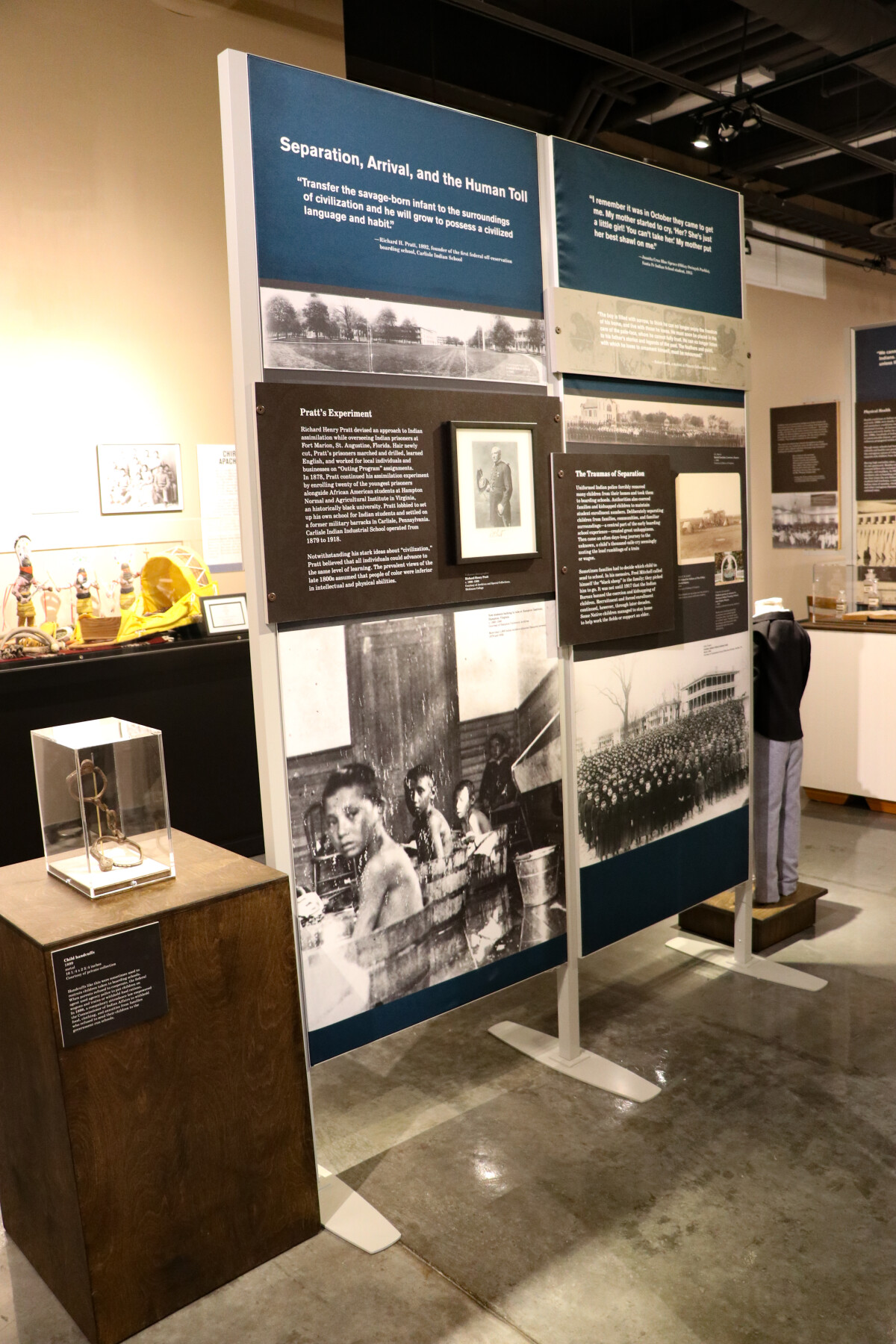
Away from Home Virtual Exhibition
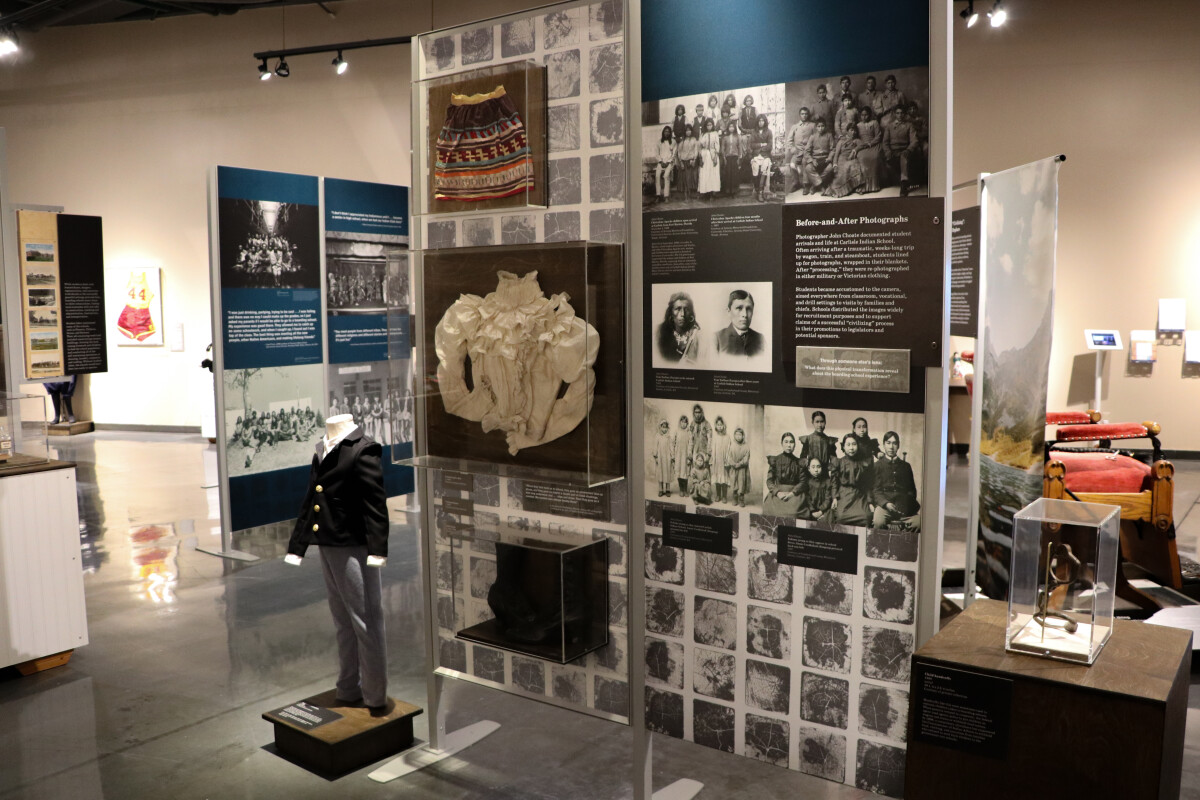
Away from Home Virtual Exhibition
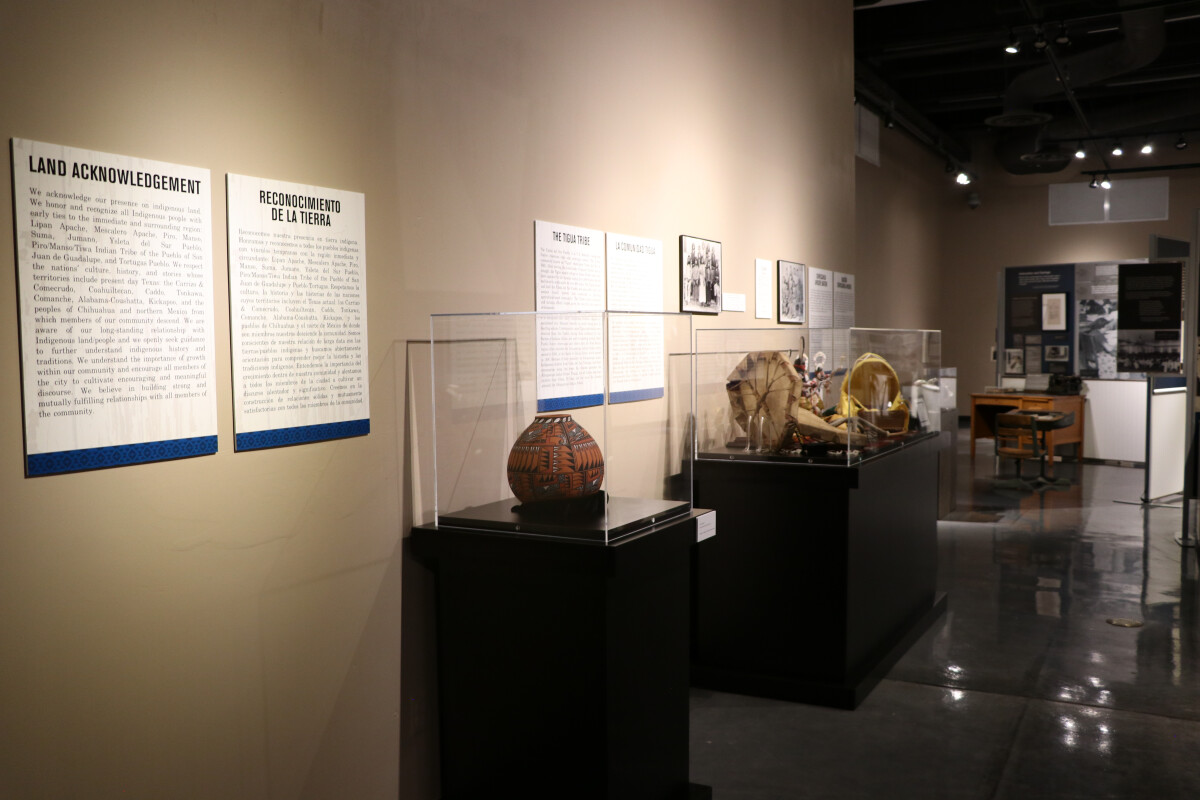
Away from Home Virtual Exhibition
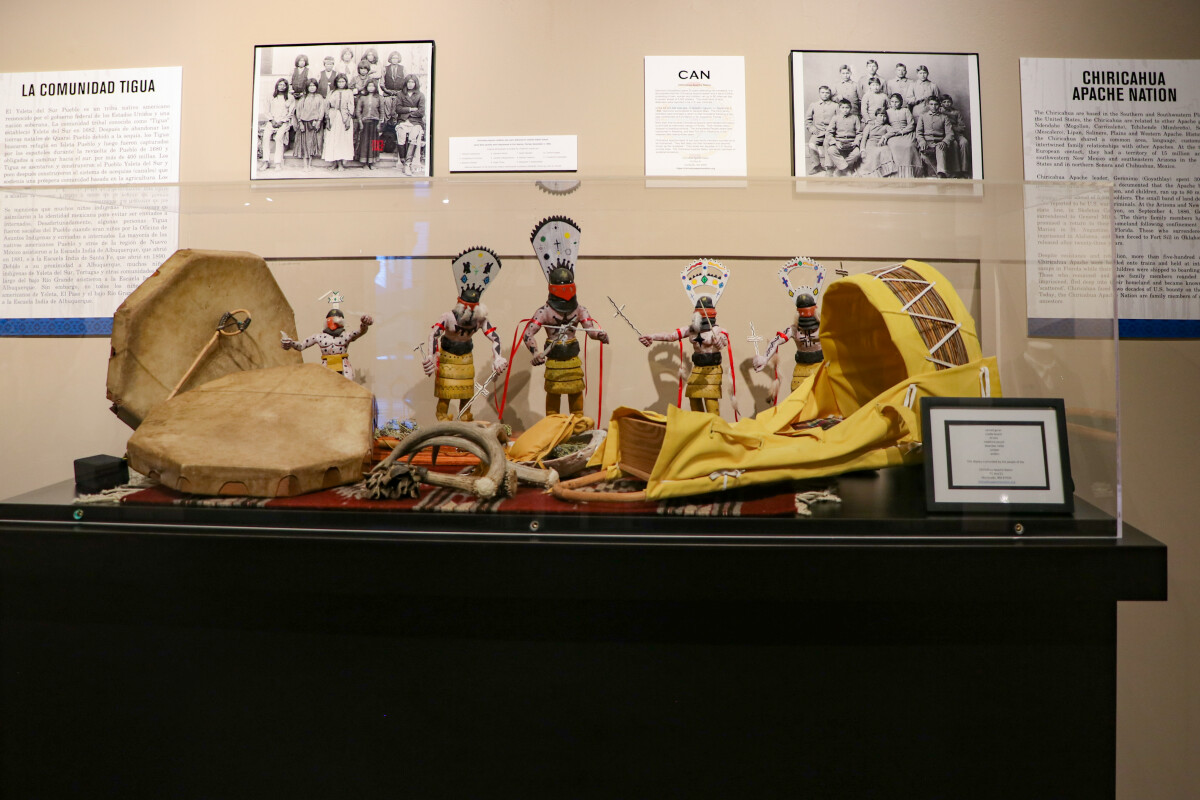
Away from Home Virtual Exhibition
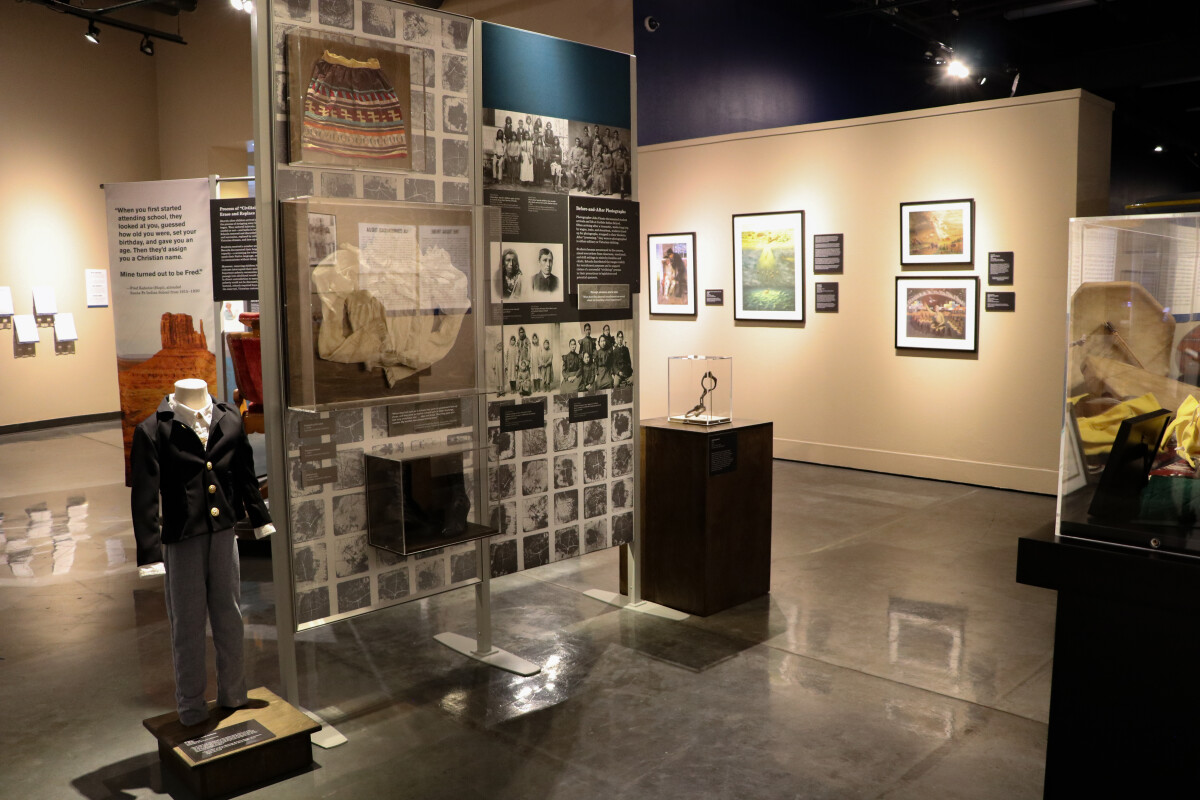
Away from Home Virtual Exhibition
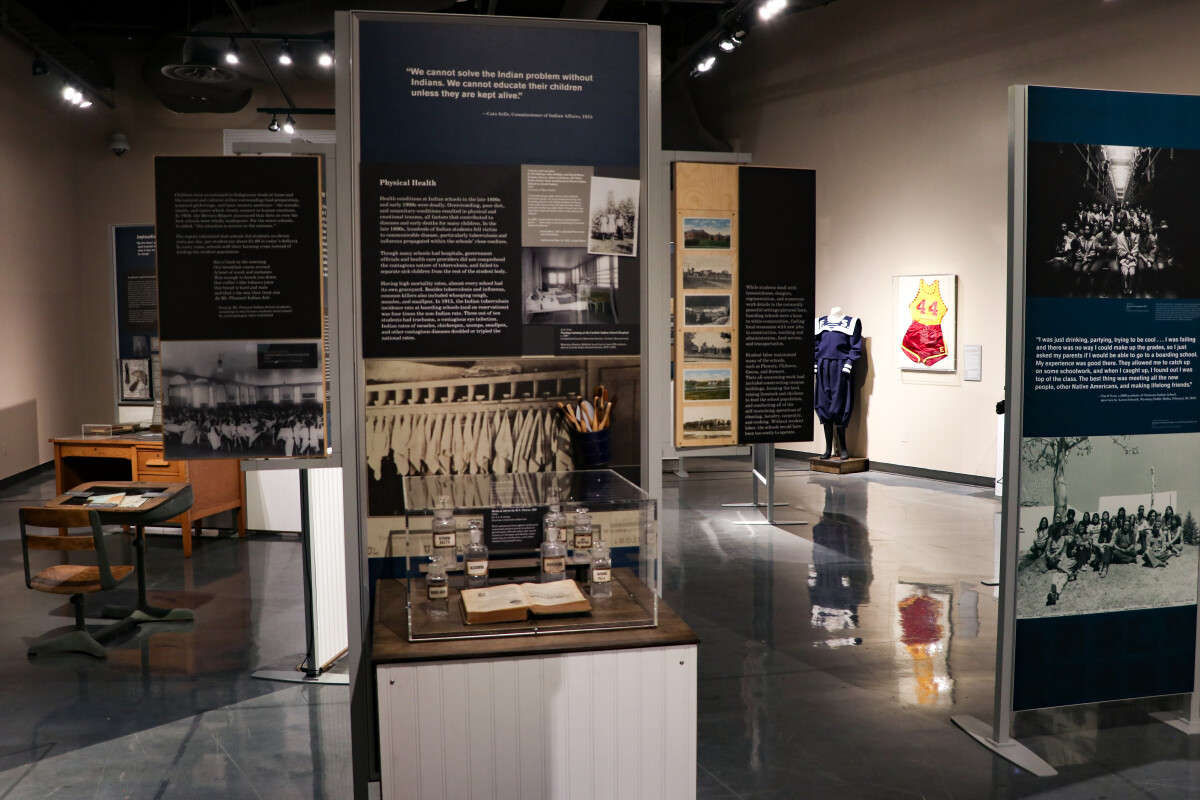
Away from Home Virtual Exhibition
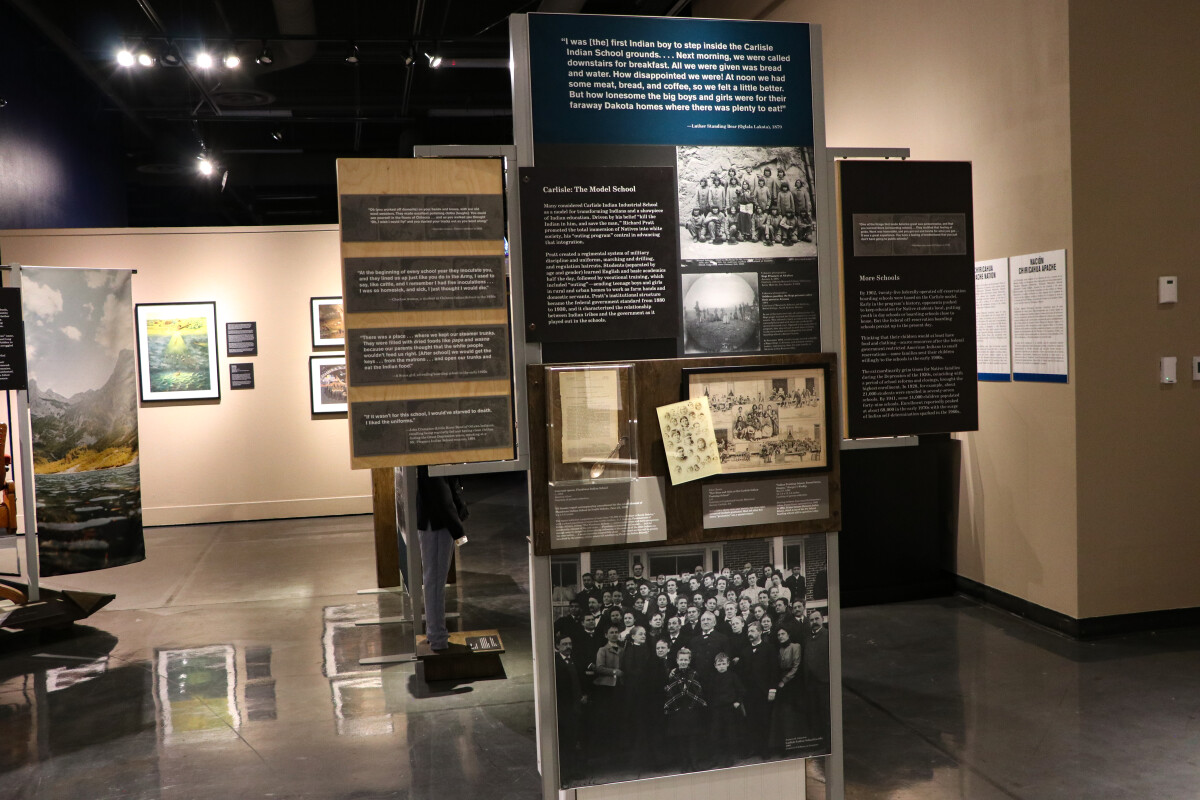
Away from Home Virtual Exhibition
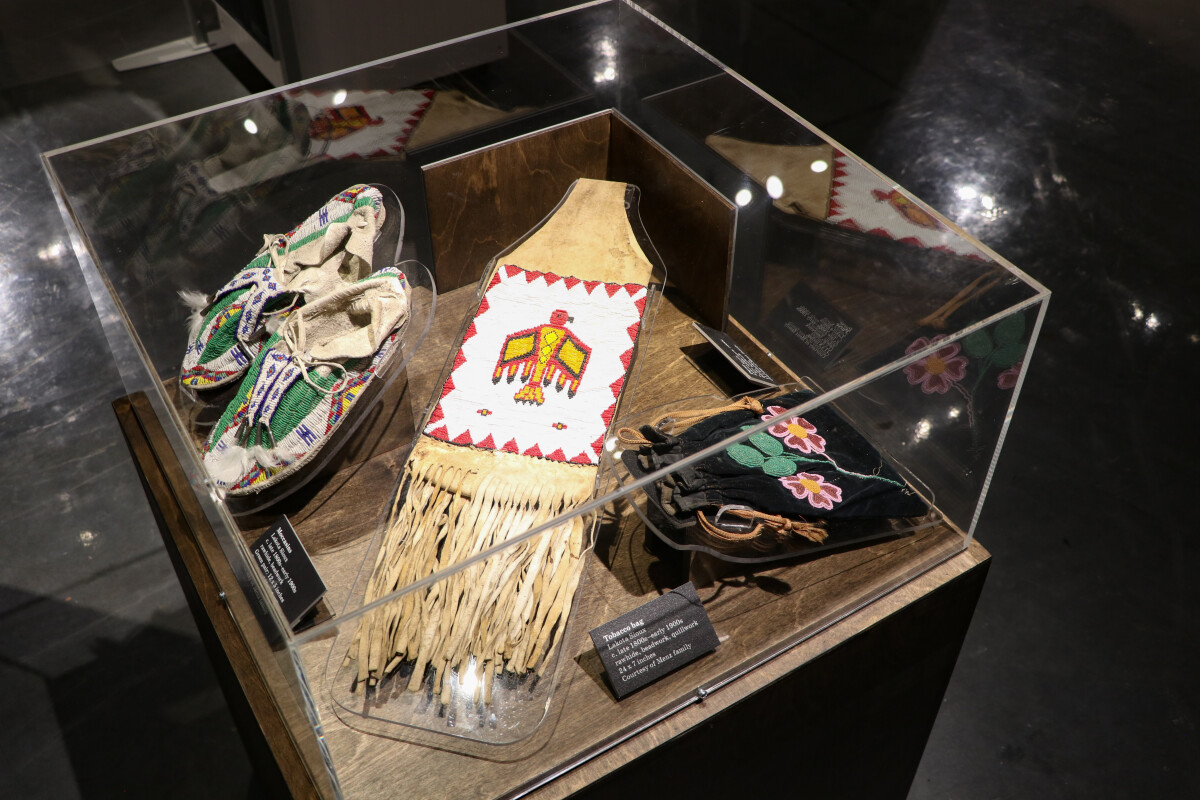
Away from Home Virtual Exhibition
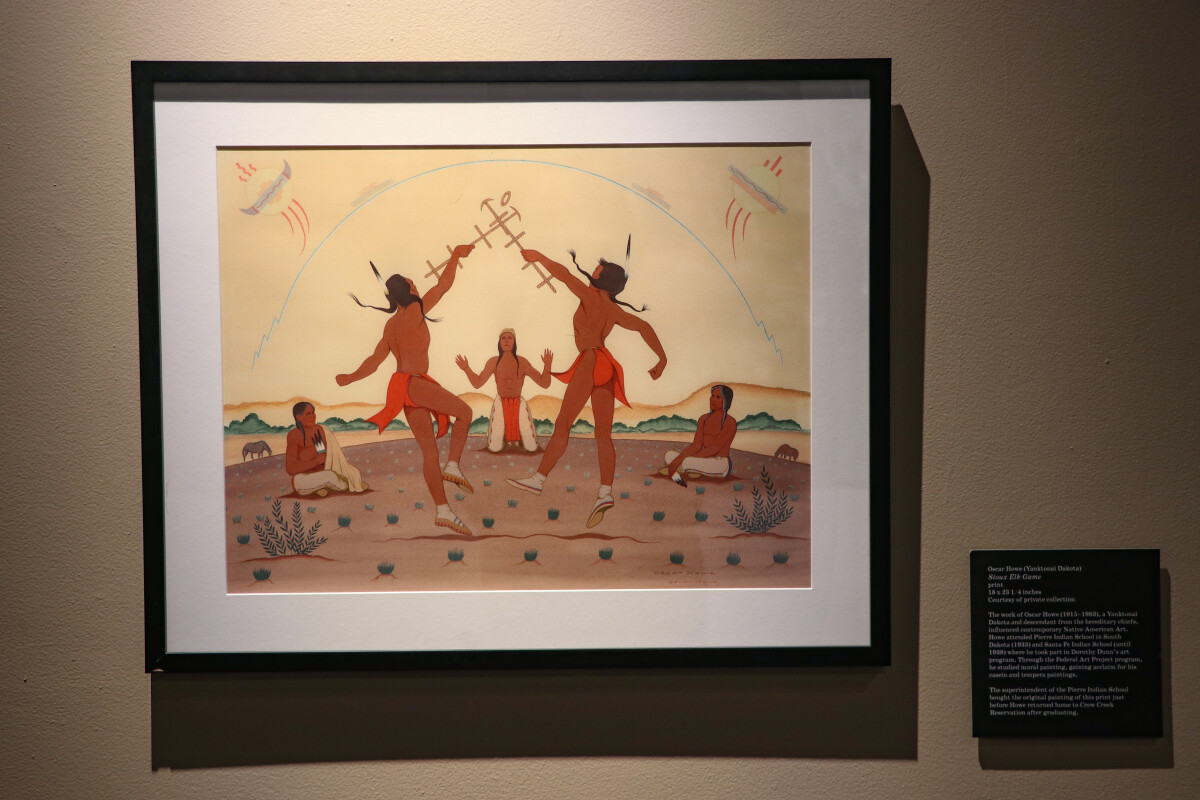
Away from Home Virtual Exhibition
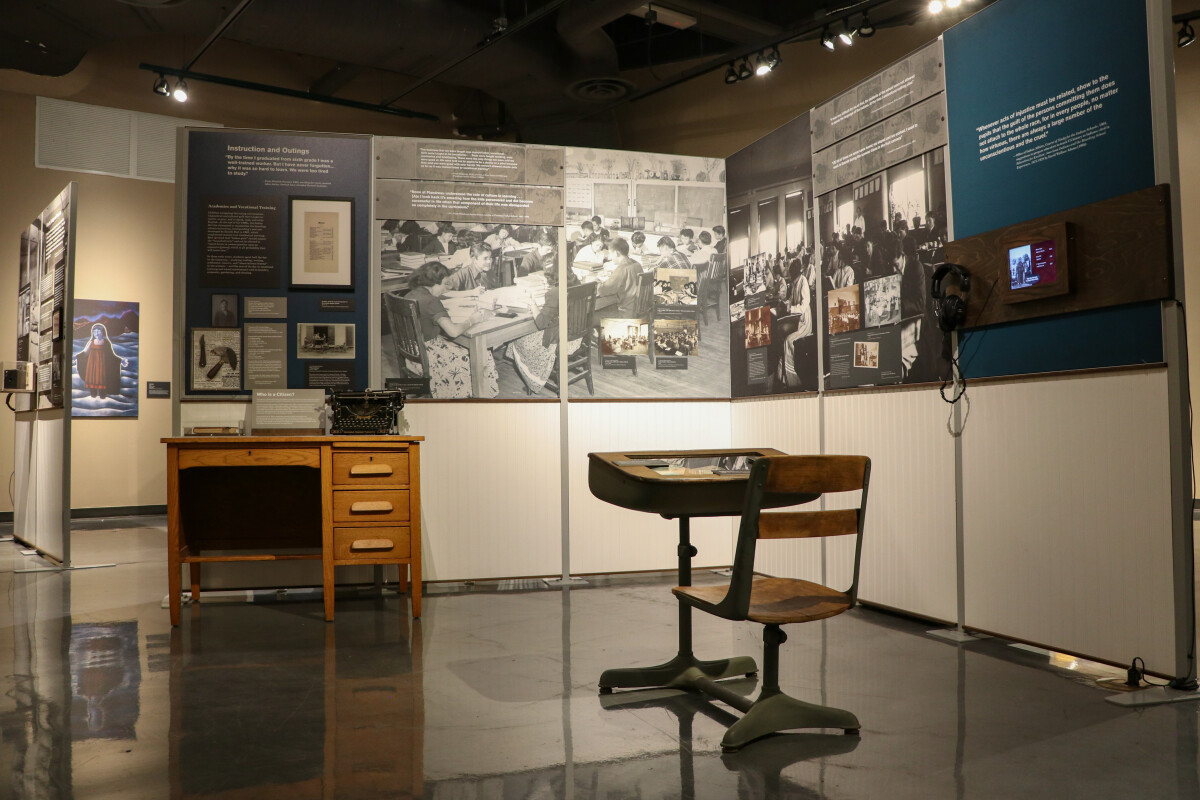
Away from Home Virtual Exhibition
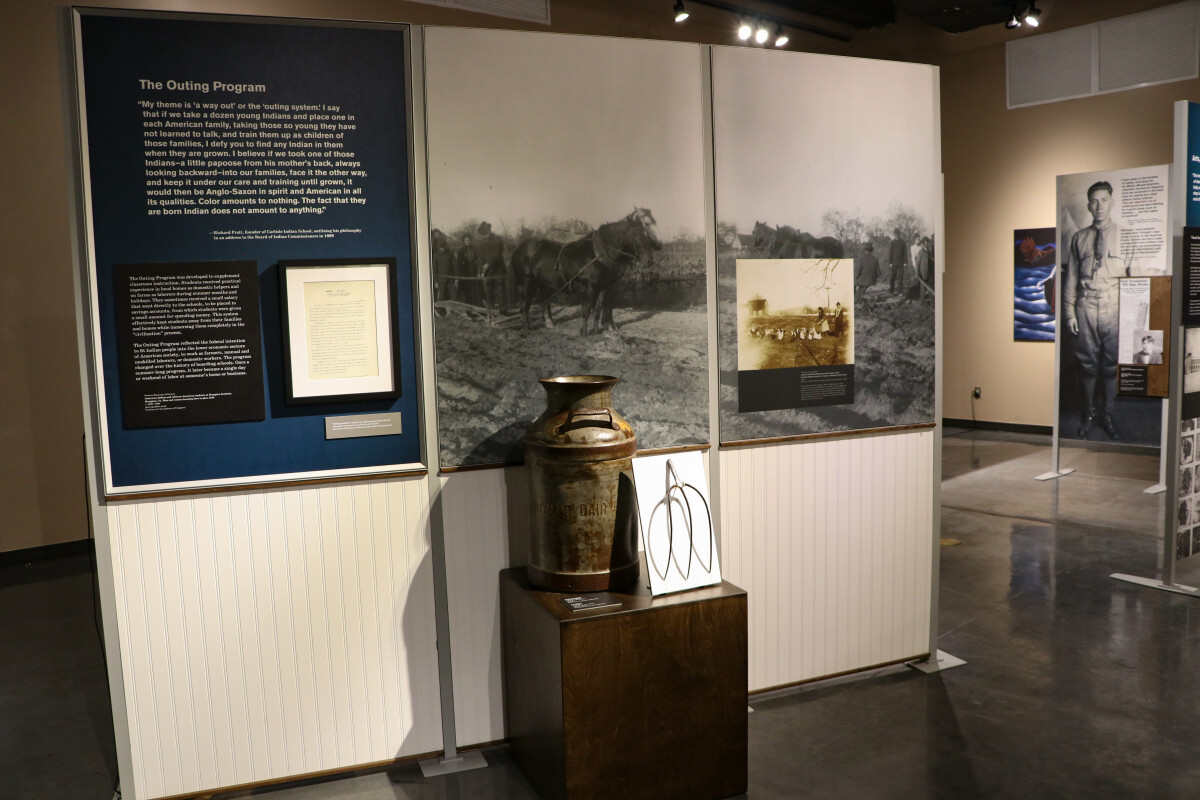
Away from Home Virtual Exhibition
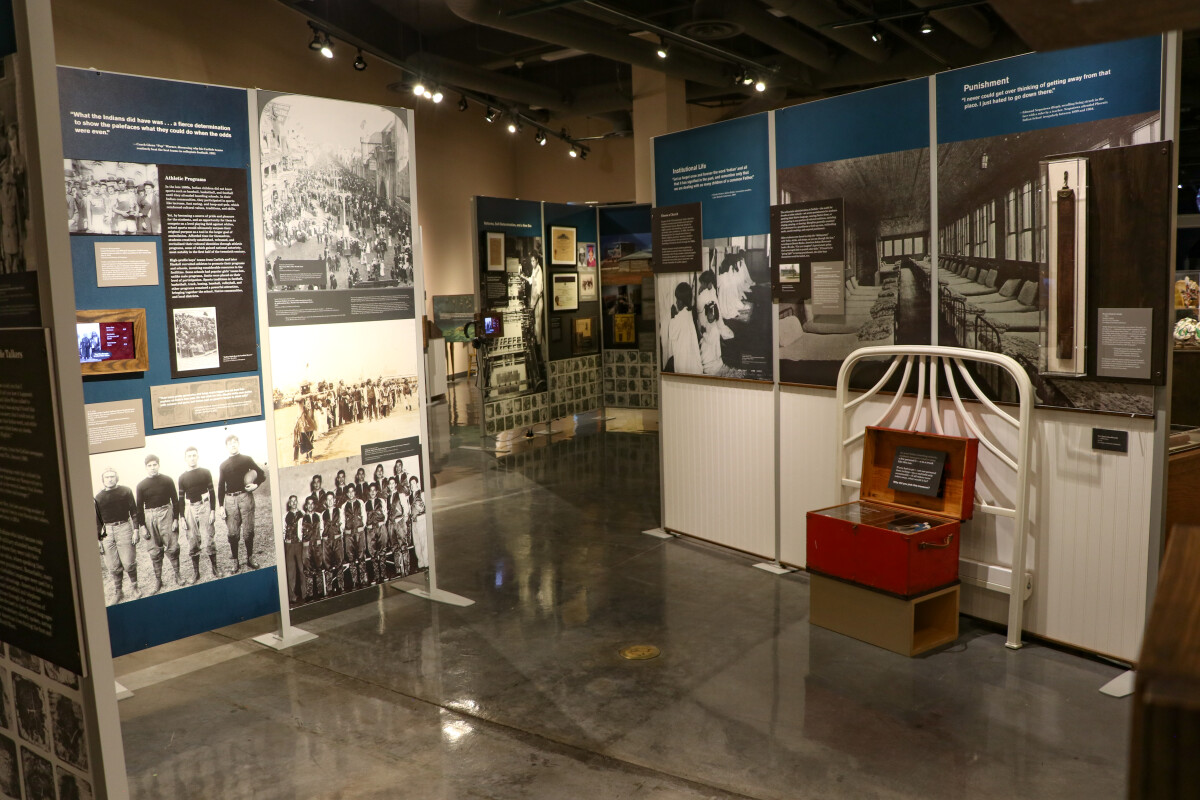
Away from Home Virtual Exhibition
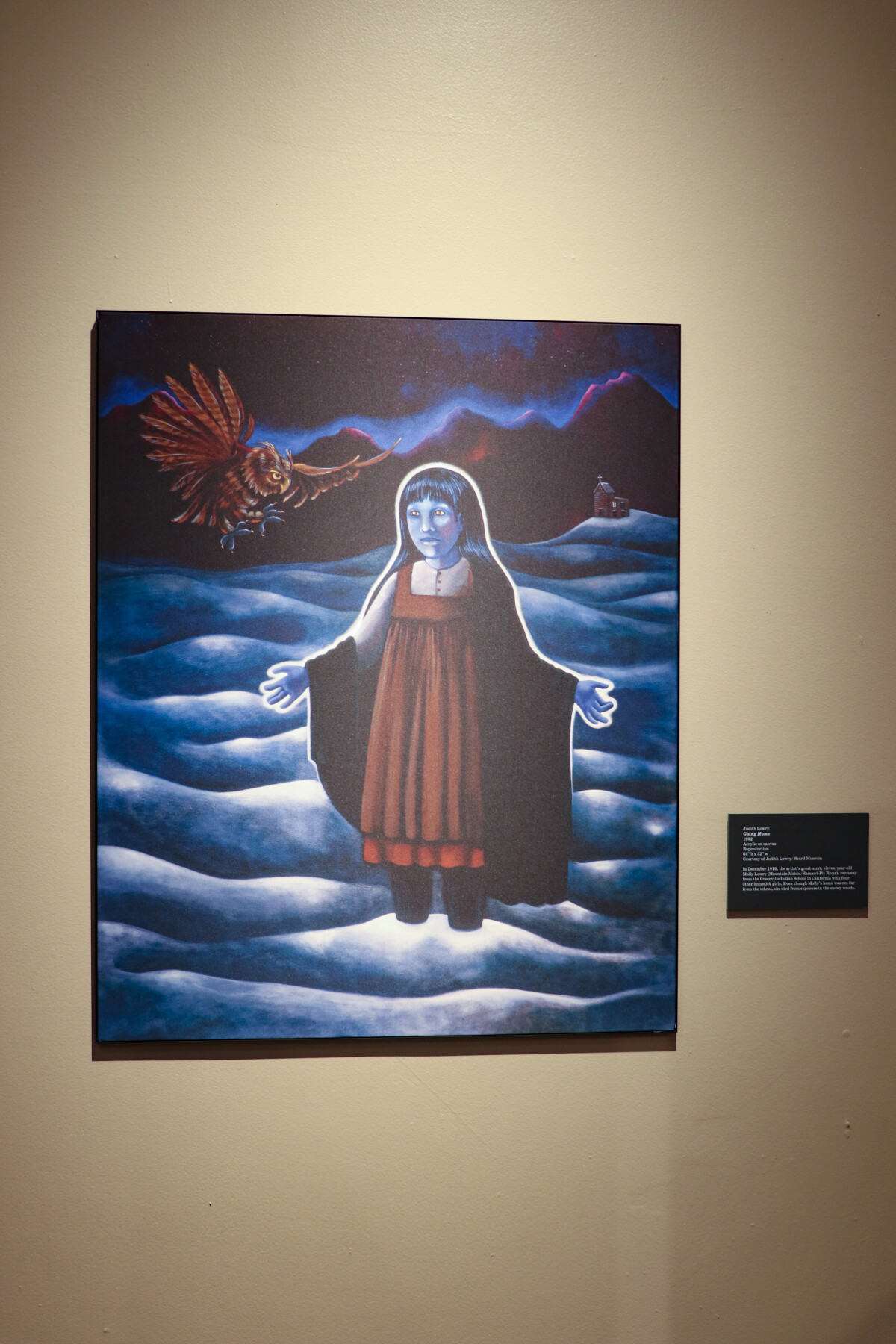
Away from Home Virtual Exhibition
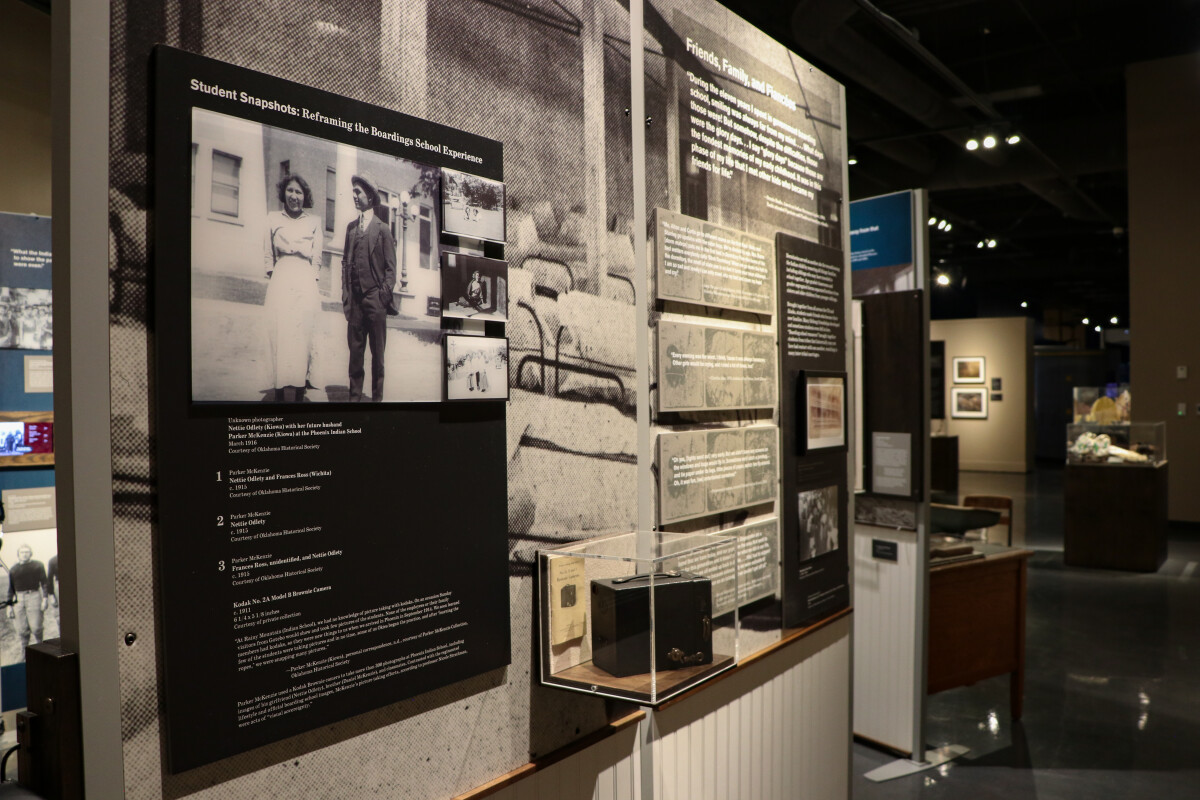
Away from Home Virtual Exhibition
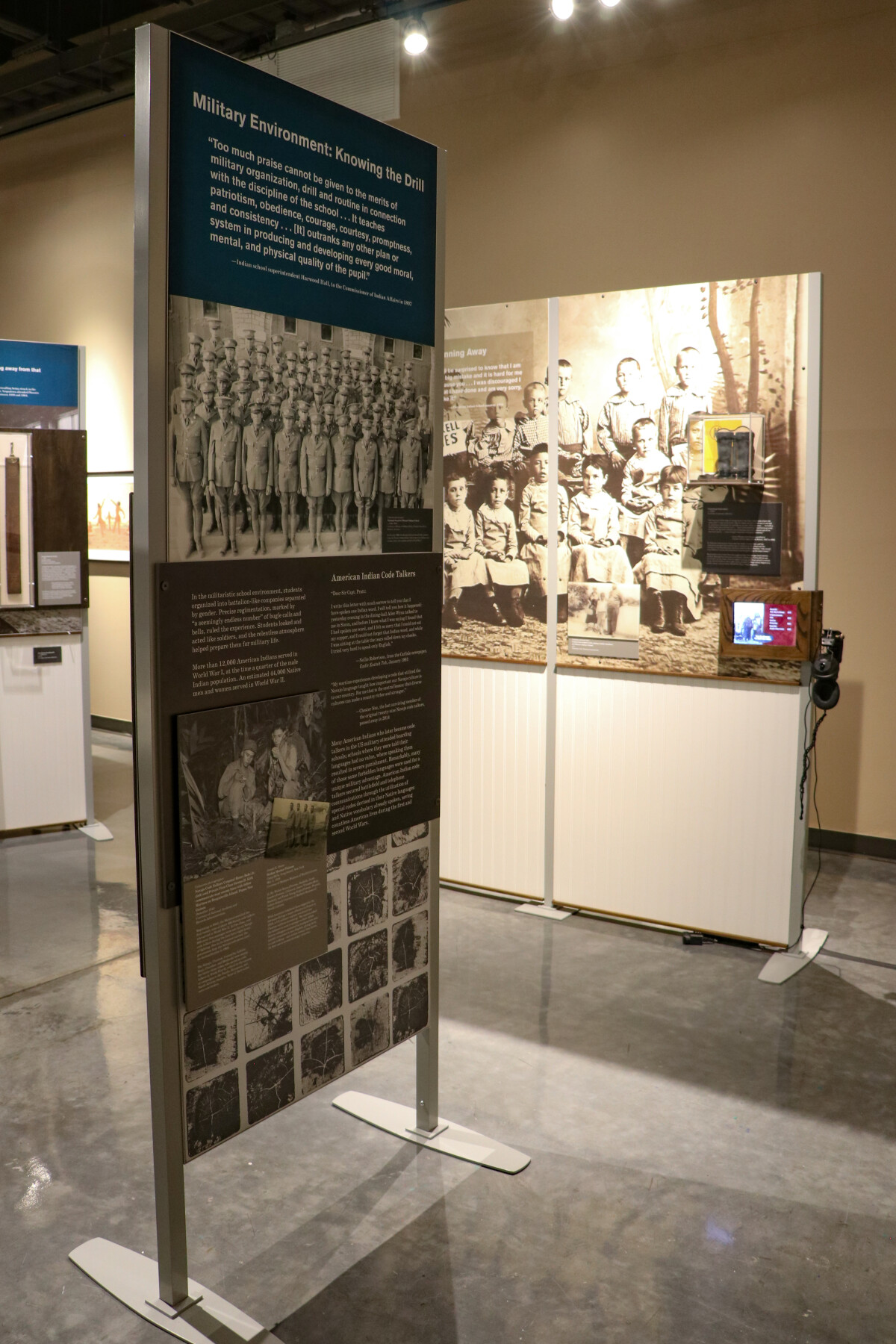
Away from Home Virtual Exhibition
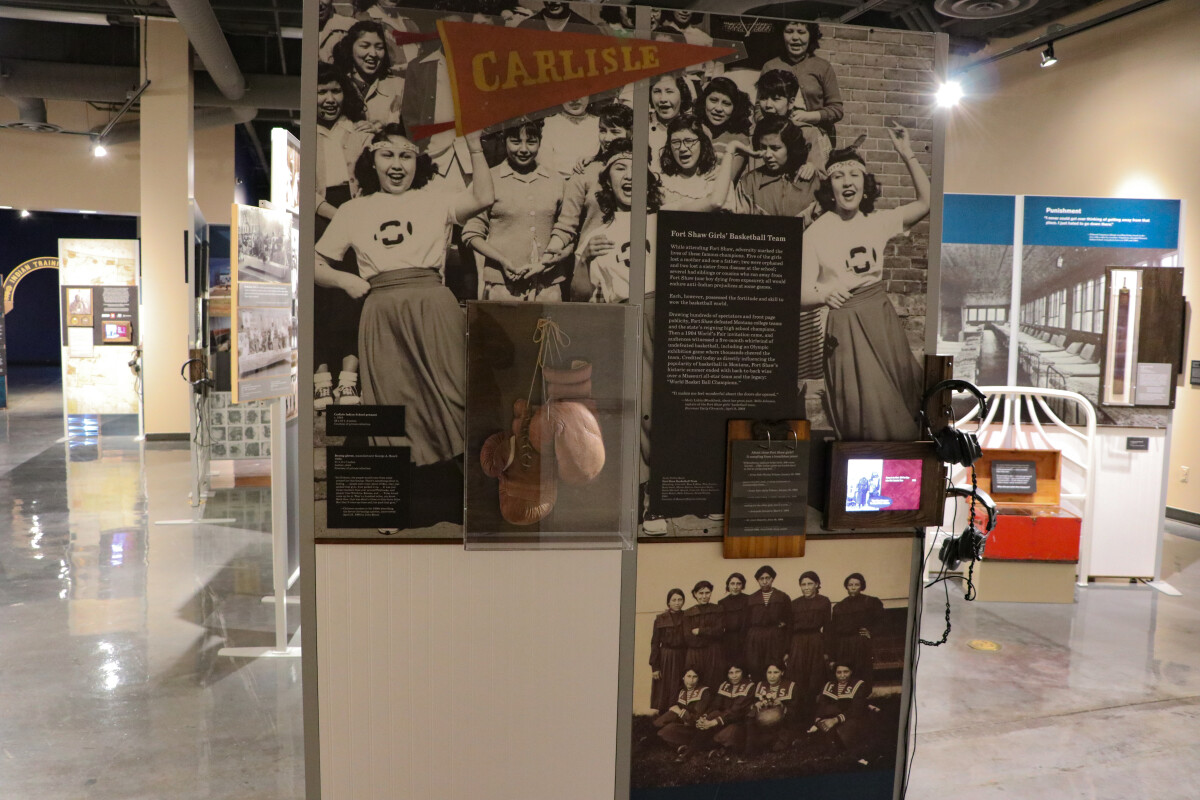
Away from Home Virtual Exhibition
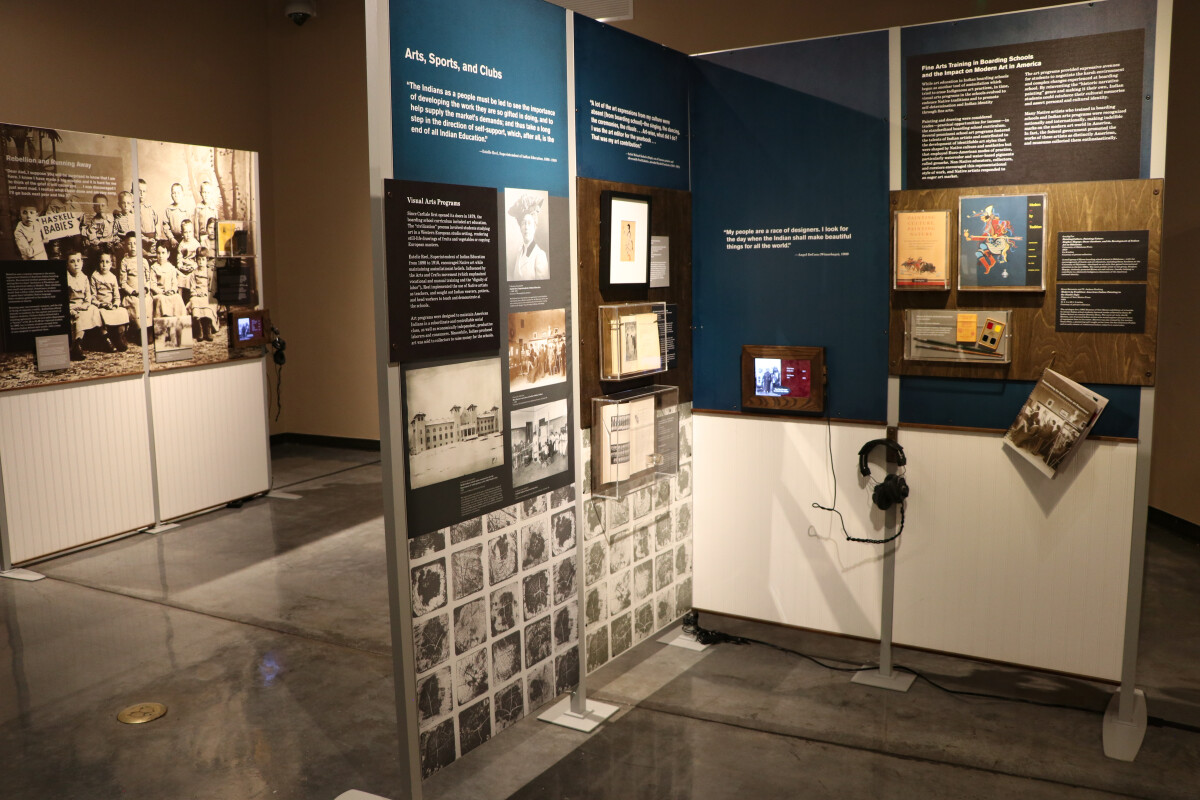
Away from Home Virtual Exhibition
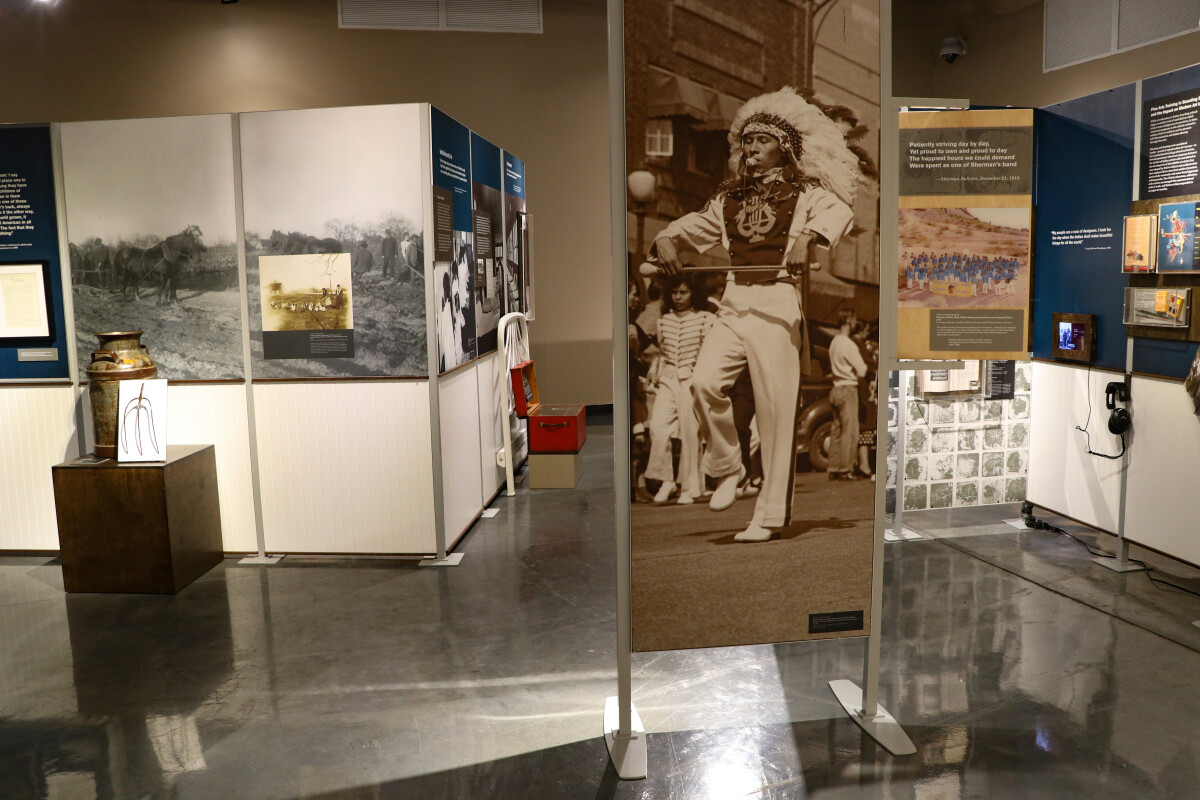
Away from Home Virtual Exhibition
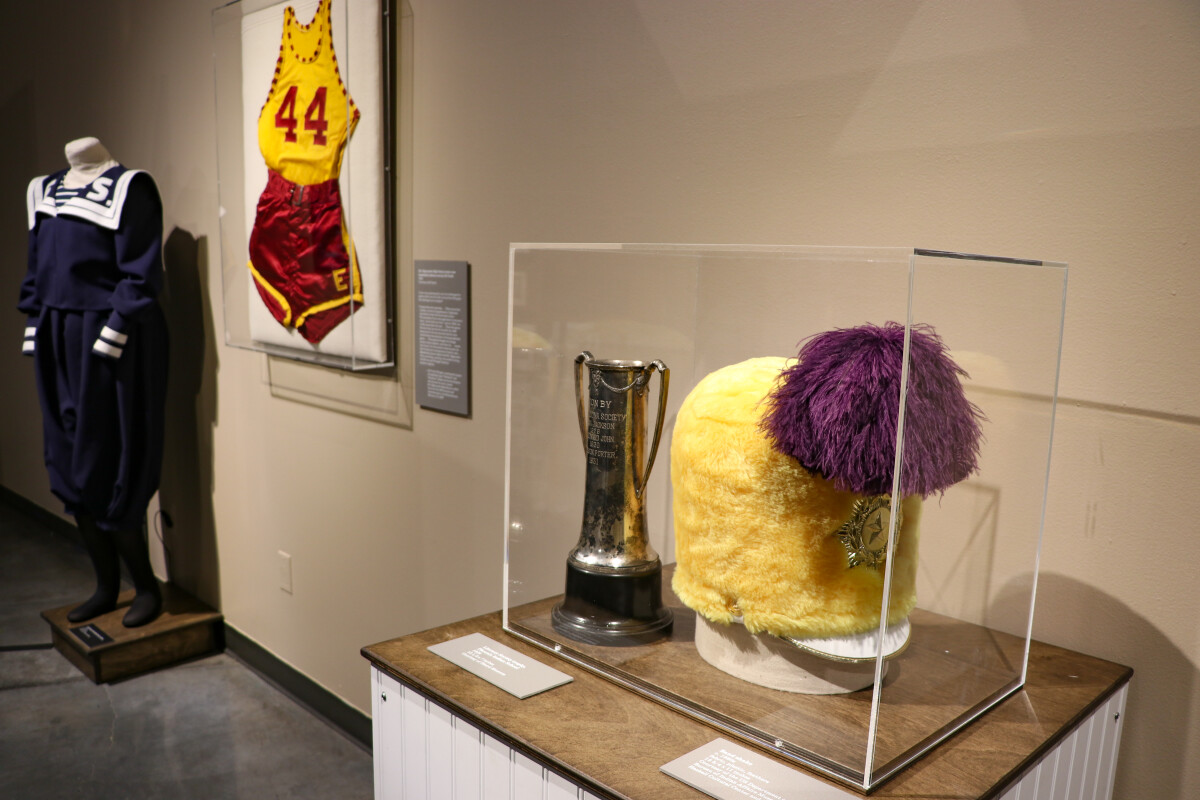
Away from Home Virtual Exhibition
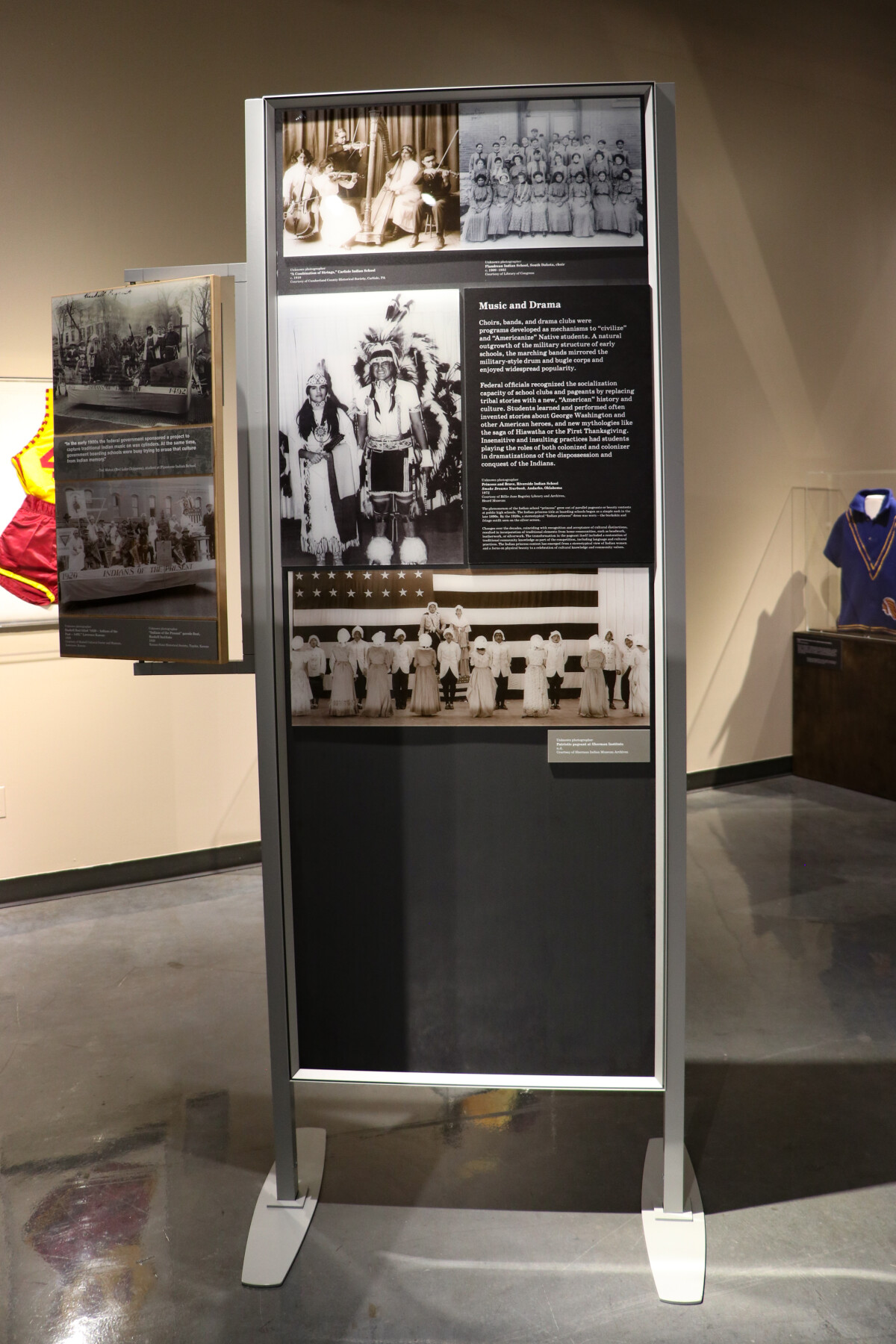
Away from Home Virtual Exhibition
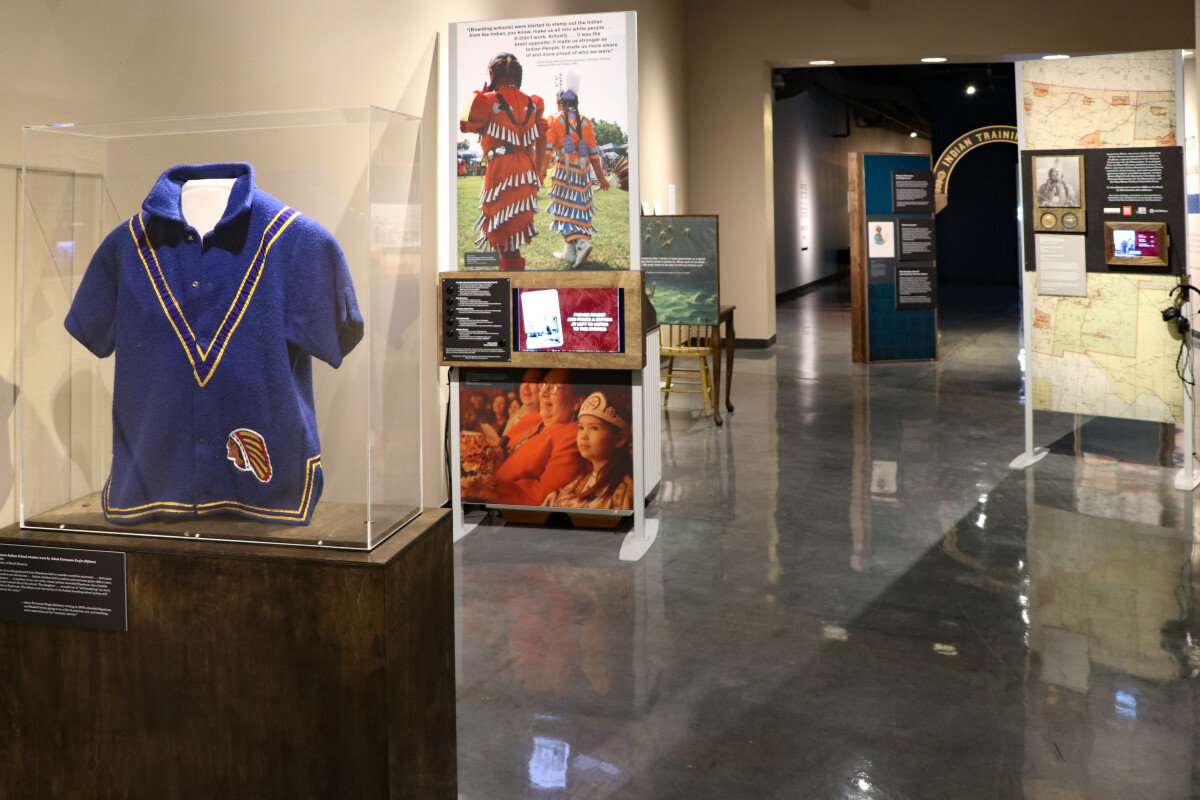
Away from Home Virtual Exhibition
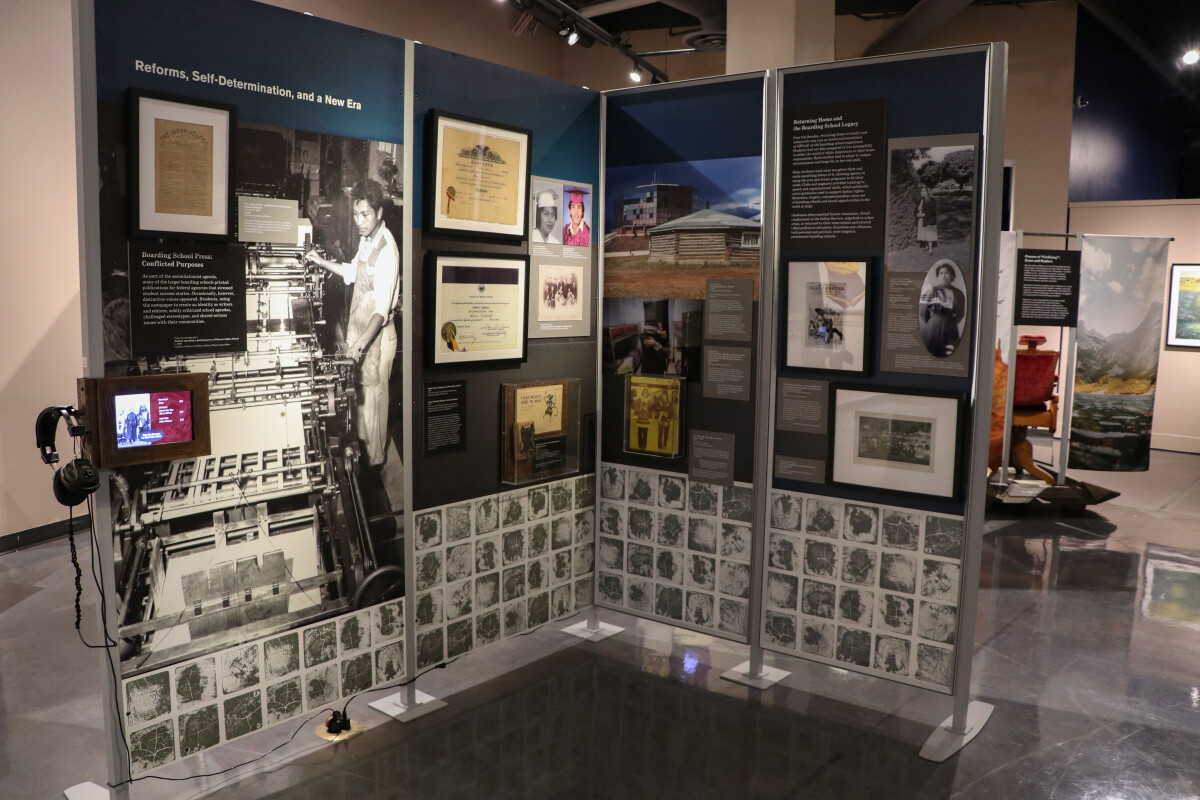
Away from Home Virtual Exhibition
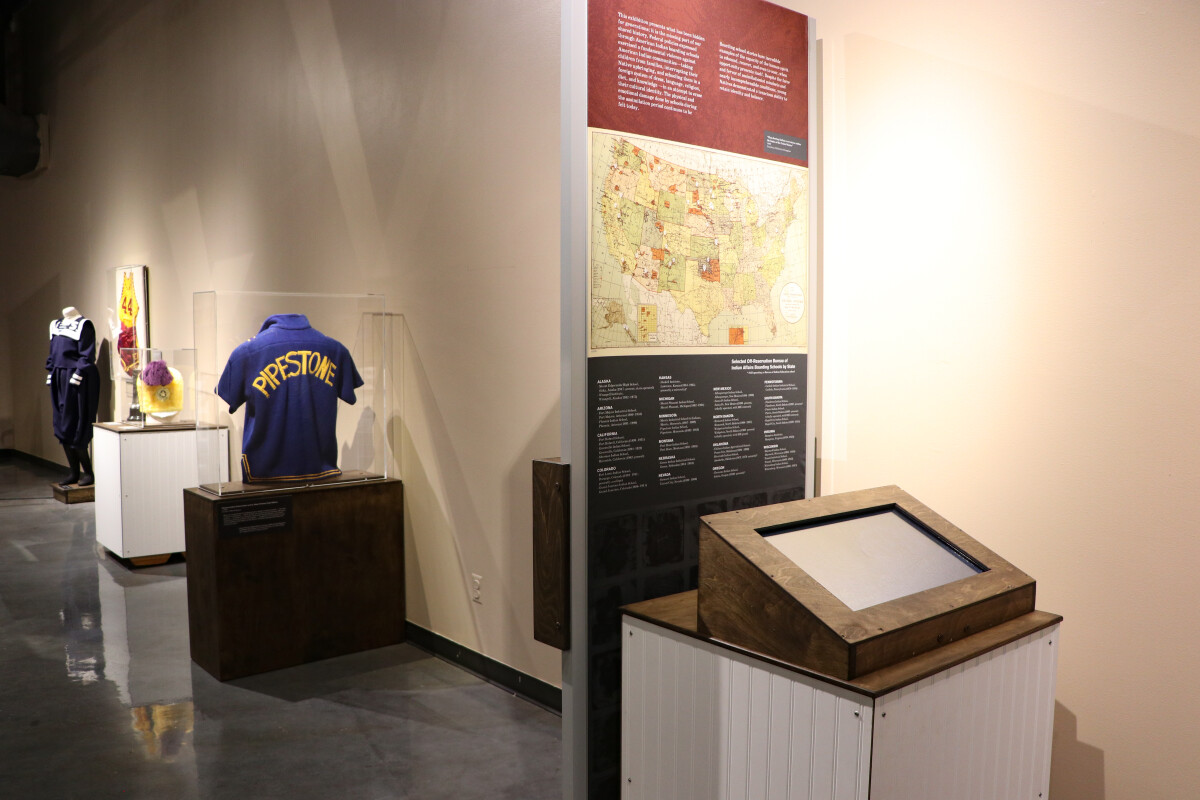
Away from Home Virtual Exhibition
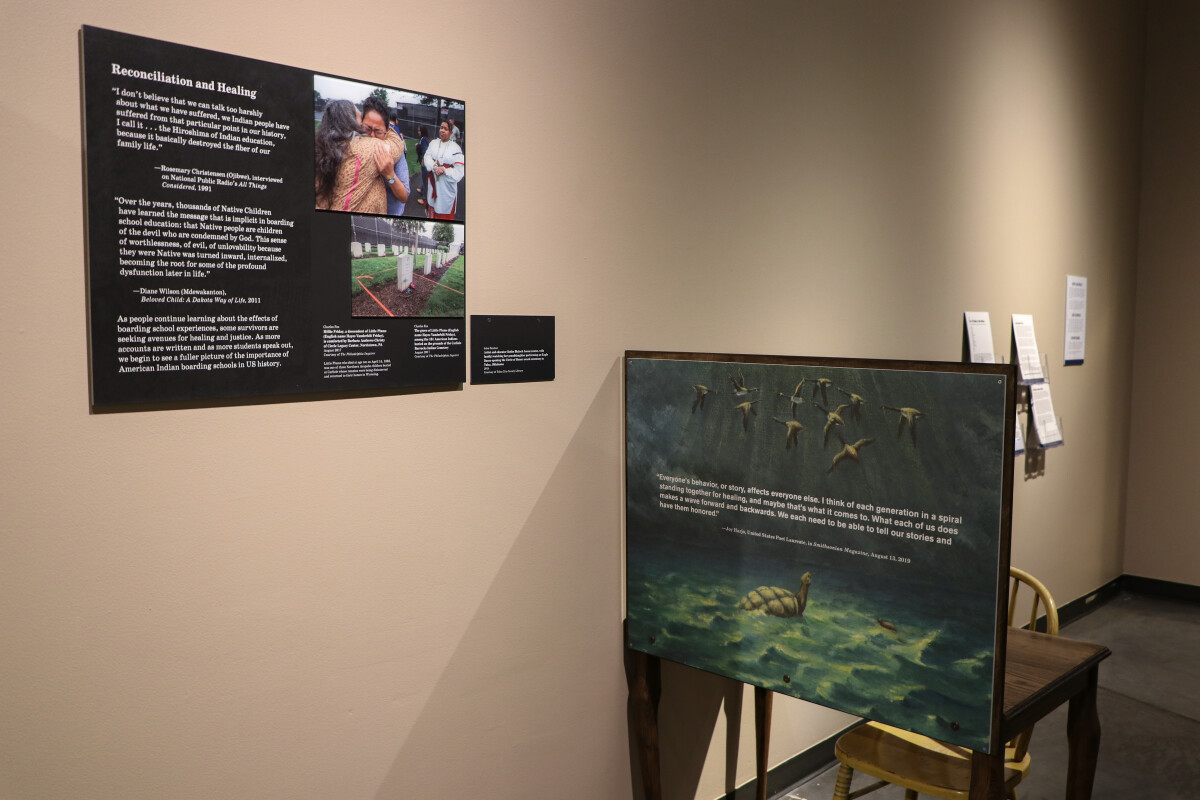
Away from Home Virtual Exhibition
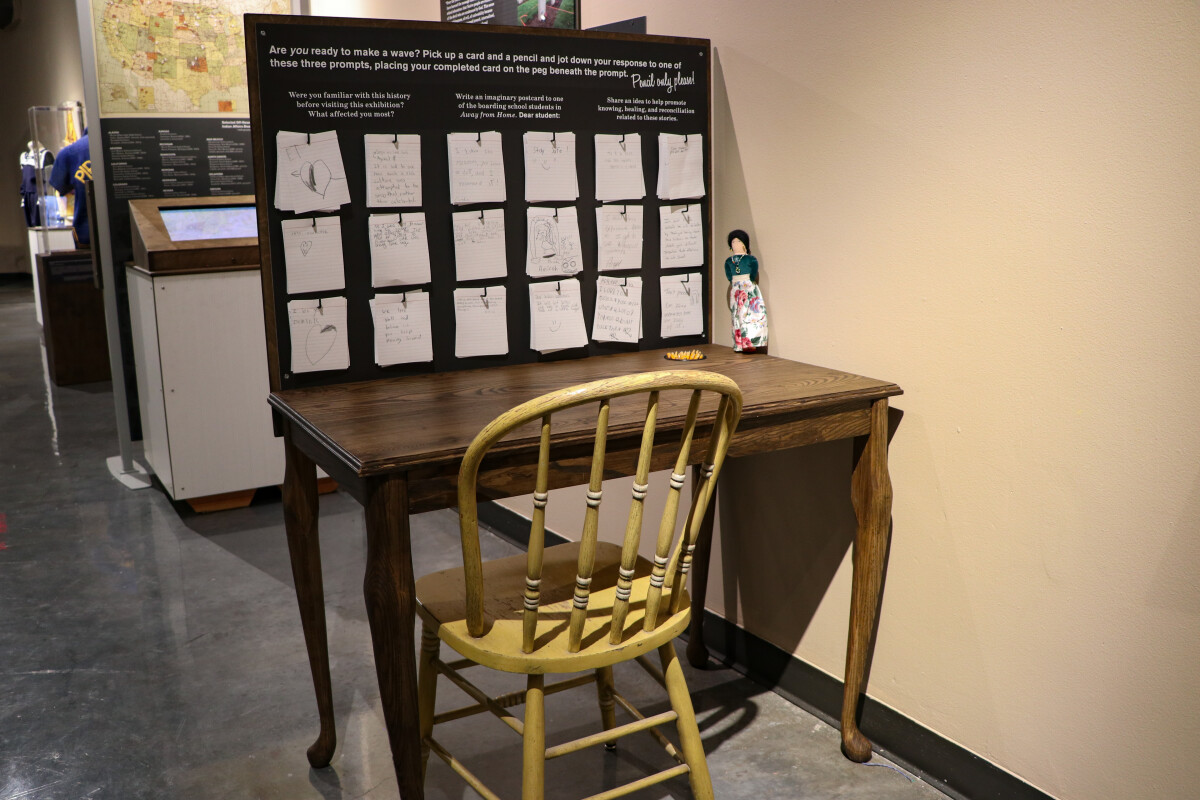
Away from Home: American Indian Boarding School Stories Virtual Exhibition
Beginning in the 1870s, the US government attempted to educate and assimilate American Indians into “civilized” society by placing children—of all ages, from thousands of homes and hundreds of diverse tribes—in distant, residential boarding schools. Many were forcibly taken from their families and communities and stripped of all signs of “Indianness,” even forbidden to speak their own language amongst themselves. Up until the 1930s, students were trained for domestic work and trade in a highly regimented environment. Many children went years without familial contact, and these events had a lasting, generational impact. "Away from Home: American Indian Boarding School Stories" explores off-reservation boarding schools in a kaleidoscope of voices. NOTE: "Away from Home" contains stories of resilience and revitalization, agency and honor. Please be aware that it also contains descriptions of human indignities and hardships and terms that reflect historically racist perspectives and language from past eras. In speaking the truth about acts of seemingly unfathomable violence and suffering in the lives of Native peoples, this exhibition is advised for more mature audience members, grades eight to adult.
Area: Central / Downtown
Source: El Paso Museum of History
Uploaded by: El Paso Museum of History
Away from Home: American Indian Boarding School Stories Virtual Exhibition
Beginning in the 1870s, the US government attempted to educate and assimilate American Indians into “civilized” society by placing children—of all ages, from thousands of homes and hundreds of diverse tribes—in distant, residential boarding schools. Many were forcibly taken from their families and communities and stripped of all signs of “Indianness,” even forbidden to speak their own language amongst themselves. Up until the 1930s, students were trained for domestic work and trade in a highly regimented environment. Many children went years without familial contact, and these events had a lasting, generational impact. "Away from Home: American Indian Boarding School Stories" explores off-reservation boarding schools in a kaleidoscope of voices. NOTE: "Away from Home" contains stories of resilience and revitalization, agency and honor. Please be aware that it also contains descriptions of human indignities and hardships and terms that reflect historically racist perspectives and language from past eras. In speaking the truth about acts of seemingly unfathomable violence and suffering in the lives of Native peoples, this exhibition is advised for more mature audience members, grades eight to adult.
Area: Central / Downtown
Source: El Paso Museum of History
Uploaded by: El Paso Museum of History
Away from Home: American Indian Boarding School Stories Virtual Exhibition
Beginning in the 1870s, the US government attempted to educate and assimilate American Indians into “civilized” society by placing children—of all ages, from thousands of homes and hundreds of diverse tribes—in distant, residential boarding schools. Many were forcibly taken from their families and communities and stripped of all signs of “Indianness,” even forbidden to speak their own language amongst themselves. Up until the 1930s, students were trained for domestic work and trade in a highly regimented environment. Many children went years without familial contact, and these events had a lasting, generational impact. "Away from Home: American Indian Boarding School Stories" explores off-reservation boarding schools in a kaleidoscope of voices. NOTE: "Away from Home" contains stories of resilience and revitalization, agency and honor. Please be aware that it also contains descriptions of human indignities and hardships and terms that reflect historically racist perspectives and language from past eras. In speaking the truth about acts of seemingly unfathomable violence and suffering in the lives of Native peoples, this exhibition is advised for more mature audience members, grades eight to adult.
Area: Central / Downtown
Source: El Paso Museum of History
Uploaded by: El Paso Museum of History
Away from Home: American Indian Boarding School Stories Virtual Exhibition
Beginning in the 1870s, the US government attempted to educate and assimilate American Indians into “civilized” society by placing children—of all ages, from thousands of homes and hundreds of diverse tribes—in distant, residential boarding schools. Many were forcibly taken from their families and communities and stripped of all signs of “Indianness,” even forbidden to speak their own language amongst themselves. Up until the 1930s, students were trained for domestic work and trade in a highly regimented environment. Many children went years without familial contact, and these events had a lasting, generational impact. "Away from Home: American Indian Boarding School Stories" explores off-reservation boarding schools in a kaleidoscope of voices. NOTE: "Away from Home" contains stories of resilience and revitalization, agency and honor. Please be aware that it also contains descriptions of human indignities and hardships and terms that reflect historically racist perspectives and language from past eras. In speaking the truth about acts of seemingly unfathomable violence and suffering in the lives of Native peoples, this exhibition is advised for more mature audience members, grades eight to adult.
Area: Central / Downtown
Source: El Paso Museum of History
Uploaded by: El Paso Museum of History
Away from Home: American Indian Boarding School Stories Virtual Exhibition
Beginning in the 1870s, the US government attempted to educate and assimilate American Indians into “civilized” society by placing children—of all ages, from thousands of homes and hundreds of diverse tribes—in distant, residential boarding schools. Many were forcibly taken from their families and communities and stripped of all signs of “Indianness,” even forbidden to speak their own language amongst themselves. Up until the 1930s, students were trained for domestic work and trade in a highly regimented environment. Many children went years without familial contact, and these events had a lasting, generational impact. "Away from Home: American Indian Boarding School Stories" explores off-reservation boarding schools in a kaleidoscope of voices. NOTE: "Away from Home" contains stories of resilience and revitalization, agency and honor. Please be aware that it also contains descriptions of human indignities and hardships and terms that reflect historically racist perspectives and language from past eras. In speaking the truth about acts of seemingly unfathomable violence and suffering in the lives of Native peoples, this exhibition is advised for more mature audience members, grades eight to adult.
Area: Central / Downtown
Source: El Paso Museum of History
Uploaded by: El Paso Museum of History
Away from Home: American Indian Boarding School Stories Virtual Exhibition
Beginning in the 1870s, the US government attempted to educate and assimilate American Indians into “civilized” society by placing children—of all ages, from thousands of homes and hundreds of diverse tribes—in distant, residential boarding schools. Many were forcibly taken from their families and communities and stripped of all signs of “Indianness,” even forbidden to speak their own language amongst themselves. Up until the 1930s, students were trained for domestic work and trade in a highly regimented environment. Many children went years without familial contact, and these events had a lasting, generational impact. "Away from Home: American Indian Boarding School Stories" explores off-reservation boarding schools in a kaleidoscope of voices. NOTE: "Away from Home" contains stories of resilience and revitalization, agency and honor. Please be aware that it also contains descriptions of human indignities and hardships and terms that reflect historically racist perspectives and language from past eras. In speaking the truth about acts of seemingly unfathomable violence and suffering in the lives of Native peoples, this exhibition is advised for more mature audience members, grades eight to adult.
Area: Central / Downtown
Source: El Paso Museum of History
Uploaded by: El Paso Museum of History
Away from Home: American Indian Boarding School Stories Virtual Exhibition
Beginning in the 1870s, the US government attempted to educate and assimilate American Indians into “civilized” society by placing children—of all ages, from thousands of homes and hundreds of diverse tribes—in distant, residential boarding schools. Many were forcibly taken from their families and communities and stripped of all signs of “Indianness,” even forbidden to speak their own language amongst themselves. Up until the 1930s, students were trained for domestic work and trade in a highly regimented environment. Many children went years without familial contact, and these events had a lasting, generational impact. "Away from Home: American Indian Boarding School Stories" explores off-reservation boarding schools in a kaleidoscope of voices. NOTE: "Away from Home" contains stories of resilience and revitalization, agency and honor. Please be aware that it also contains descriptions of human indignities and hardships and terms that reflect historically racist perspectives and language from past eras. In speaking the truth about acts of seemingly unfathomable violence and suffering in the lives of Native peoples, this exhibition is advised for more mature audience members, grades eight to adult.
Area: Central / Downtown
Source: El Paso Museum of History
Uploaded by: El Paso Museum of History
Away from Home: American Indian Boarding School Stories Virtual Exhibition
Beginning in the 1870s, the US government attempted to educate and assimilate American Indians into “civilized” society by placing children—of all ages, from thousands of homes and hundreds of diverse tribes—in distant, residential boarding schools. Many were forcibly taken from their families and communities and stripped of all signs of “Indianness,” even forbidden to speak their own language amongst themselves. Up until the 1930s, students were trained for domestic work and trade in a highly regimented environment. Many children went years without familial contact, and these events had a lasting, generational impact. "Away from Home: American Indian Boarding School Stories" explores off-reservation boarding schools in a kaleidoscope of voices. NOTE: "Away from Home" contains stories of resilience and revitalization, agency and honor. Please be aware that it also contains descriptions of human indignities and hardships and terms that reflect historically racist perspectives and language from past eras. In speaking the truth about acts of seemingly unfathomable violence and suffering in the lives of Native peoples, this exhibition is advised for more mature audience members, grades eight to adult.
Area: Central / Downtown
Source: El Paso Museum of History
Uploaded by: El Paso Museum of History
Away from Home: American Indian Boarding School Stories Virtual Exhibition
Beginning in the 1870s, the US government attempted to educate and assimilate American Indians into “civilized” society by placing children—of all ages, from thousands of homes and hundreds of diverse tribes—in distant, residential boarding schools. Many were forcibly taken from their families and communities and stripped of all signs of “Indianness,” even forbidden to speak their own language amongst themselves. Up until the 1930s, students were trained for domestic work and trade in a highly regimented environment. Many children went years without familial contact, and these events had a lasting, generational impact. "Away from Home: American Indian Boarding School Stories" explores off-reservation boarding schools in a kaleidoscope of voices. NOTE: "Away from Home" contains stories of resilience and revitalization, agency and honor. Please be aware that it also contains descriptions of human indignities and hardships and terms that reflect historically racist perspectives and language from past eras. In speaking the truth about acts of seemingly unfathomable violence and suffering in the lives of Native peoples, this exhibition is advised for more mature audience members, grades eight to adult.
Area: Central / Downtown
Source: El Paso Museum of History
Uploaded by: El Paso Museum of History
Away from Home: American Indian Boarding School Stories Virtual Exhibition
Beginning in the 1870s, the US government attempted to educate and assimilate American Indians into “civilized” society by placing children—of all ages, from thousands of homes and hundreds of diverse tribes—in distant, residential boarding schools. Many were forcibly taken from their families and communities and stripped of all signs of “Indianness,” even forbidden to speak their own language amongst themselves. Up until the 1930s, students were trained for domestic work and trade in a highly regimented environment. Many children went years without familial contact, and these events had a lasting, generational impact. "Away from Home: American Indian Boarding School Stories" explores off-reservation boarding schools in a kaleidoscope of voices. NOTE: "Away from Home" contains stories of resilience and revitalization, agency and honor. Please be aware that it also contains descriptions of human indignities and hardships and terms that reflect historically racist perspectives and language from past eras. In speaking the truth about acts of seemingly unfathomable violence and suffering in the lives of Native peoples, this exhibition is advised for more mature audience members, grades eight to adult.
Area: Central / Downtown
Source: El Paso Museum of History
Uploaded by: El Paso Museum of History
Away from Home: American Indian Boarding School Stories Virtual Exhibition
Beginning in the 1870s, the US government attempted to educate and assimilate American Indians into “civilized” society by placing children—of all ages, from thousands of homes and hundreds of diverse tribes—in distant, residential boarding schools. Many were forcibly taken from their families and communities and stripped of all signs of “Indianness,” even forbidden to speak their own language amongst themselves. Up until the 1930s, students were trained for domestic work and trade in a highly regimented environment. Many children went years without familial contact, and these events had a lasting, generational impact. "Away from Home: American Indian Boarding School Stories" explores off-reservation boarding schools in a kaleidoscope of voices. NOTE: "Away from Home" contains stories of resilience and revitalization, agency and honor. Please be aware that it also contains descriptions of human indignities and hardships and terms that reflect historically racist perspectives and language from past eras. In speaking the truth about acts of seemingly unfathomable violence and suffering in the lives of Native peoples, this exhibition is advised for more mature audience members, grades eight to adult.
Area: Central / Downtown
Source: El Paso Museum of History
Uploaded by: El Paso Museum of History
Away from Home: American Indian Boarding School Stories Virtual Exhibition
Beginning in the 1870s, the US government attempted to educate and assimilate American Indians into “civilized” society by placing children—of all ages, from thousands of homes and hundreds of diverse tribes—in distant, residential boarding schools. Many were forcibly taken from their families and communities and stripped of all signs of “Indianness,” even forbidden to speak their own language amongst themselves. Up until the 1930s, students were trained for domestic work and trade in a highly regimented environment. Many children went years without familial contact, and these events had a lasting, generational impact. "Away from Home: American Indian Boarding School Stories" explores off-reservation boarding schools in a kaleidoscope of voices. NOTE: "Away from Home" contains stories of resilience and revitalization, agency and honor. Please be aware that it also contains descriptions of human indignities and hardships and terms that reflect historically racist perspectives and language from past eras. In speaking the truth about acts of seemingly unfathomable violence and suffering in the lives of Native peoples, this exhibition is advised for more mature audience members, grades eight to adult.
Area: Central / Downtown
Source: El Paso Museum of History
Uploaded by: El Paso Museum of History
Away from Home: American Indian Boarding School Stories Virtual Exhibition
Beginning in the 1870s, the US government attempted to educate and assimilate American Indians into “civilized” society by placing children—of all ages, from thousands of homes and hundreds of diverse tribes—in distant, residential boarding schools. Many were forcibly taken from their families and communities and stripped of all signs of “Indianness,” even forbidden to speak their own language amongst themselves. Up until the 1930s, students were trained for domestic work and trade in a highly regimented environment. Many children went years without familial contact, and these events had a lasting, generational impact. "Away from Home: American Indian Boarding School Stories" explores off-reservation boarding schools in a kaleidoscope of voices. NOTE: "Away from Home" contains stories of resilience and revitalization, agency and honor. Please be aware that it also contains descriptions of human indignities and hardships and terms that reflect historically racist perspectives and language from past eras. In speaking the truth about acts of seemingly unfathomable violence and suffering in the lives of Native peoples, this exhibition is advised for more mature audience members, grades eight to adult.
Area: Central / Downtown
Source: El Paso Museum of History
Uploaded by: El Paso Museum of History
Away from Home: American Indian Boarding School Stories Virtual Exhibition
Beginning in the 1870s, the US government attempted to educate and assimilate American Indians into “civilized” society by placing children—of all ages, from thousands of homes and hundreds of diverse tribes—in distant, residential boarding schools. Many were forcibly taken from their families and communities and stripped of all signs of “Indianness,” even forbidden to speak their own language amongst themselves. Up until the 1930s, students were trained for domestic work and trade in a highly regimented environment. Many children went years without familial contact, and these events had a lasting, generational impact. "Away from Home: American Indian Boarding School Stories" explores off-reservation boarding schools in a kaleidoscope of voices. NOTE: "Away from Home" contains stories of resilience and revitalization, agency and honor. Please be aware that it also contains descriptions of human indignities and hardships and terms that reflect historically racist perspectives and language from past eras. In speaking the truth about acts of seemingly unfathomable violence and suffering in the lives of Native peoples, this exhibition is advised for more mature audience members, grades eight to adult.
Area: Central / Downtown
Source: El Paso Museum of History
Uploaded by: El Paso Museum of History
Away from Home: American Indian Boarding School Stories Virtual Exhibition
Beginning in the 1870s, the US government attempted to educate and assimilate American Indians into “civilized” society by placing children—of all ages, from thousands of homes and hundreds of diverse tribes—in distant, residential boarding schools. Many were forcibly taken from their families and communities and stripped of all signs of “Indianness,” even forbidden to speak their own language amongst themselves. Up until the 1930s, students were trained for domestic work and trade in a highly regimented environment. Many children went years without familial contact, and these events had a lasting, generational impact. "Away from Home: American Indian Boarding School Stories" explores off-reservation boarding schools in a kaleidoscope of voices. NOTE: "Away from Home" contains stories of resilience and revitalization, agency and honor. Please be aware that it also contains descriptions of human indignities and hardships and terms that reflect historically racist perspectives and language from past eras. In speaking the truth about acts of seemingly unfathomable violence and suffering in the lives of Native peoples, this exhibition is advised for more mature audience members, grades eight to adult.
Area: Central / Downtown
Source: El Paso Museum of History
Uploaded by: El Paso Museum of History
Away from Home: American Indian Boarding School Stories Virtual Exhibition
Beginning in the 1870s, the US government attempted to educate and assimilate American Indians into “civilized” society by placing children—of all ages, from thousands of homes and hundreds of diverse tribes—in distant, residential boarding schools. Many were forcibly taken from their families and communities and stripped of all signs of “Indianness,” even forbidden to speak their own language amongst themselves. Up until the 1930s, students were trained for domestic work and trade in a highly regimented environment. Many children went years without familial contact, and these events had a lasting, generational impact. "Away from Home: American Indian Boarding School Stories" explores off-reservation boarding schools in a kaleidoscope of voices. NOTE: "Away from Home" contains stories of resilience and revitalization, agency and honor. Please be aware that it also contains descriptions of human indignities and hardships and terms that reflect historically racist perspectives and language from past eras. In speaking the truth about acts of seemingly unfathomable violence and suffering in the lives of Native peoples, this exhibition is advised for more mature audience members, grades eight to adult.
Area: Central / Downtown
Source: El Paso Museum of History
Uploaded by: El Paso Museum of History
Away from Home: American Indian Boarding School Stories Virtual Exhibition
Beginning in the 1870s, the US government attempted to educate and assimilate American Indians into “civilized” society by placing children—of all ages, from thousands of homes and hundreds of diverse tribes—in distant, residential boarding schools. Many were forcibly taken from their families and communities and stripped of all signs of “Indianness,” even forbidden to speak their own language amongst themselves. Up until the 1930s, students were trained for domestic work and trade in a highly regimented environment. Many children went years without familial contact, and these events had a lasting, generational impact. "Away from Home: American Indian Boarding School Stories" explores off-reservation boarding schools in a kaleidoscope of voices. NOTE: "Away from Home" contains stories of resilience and revitalization, agency and honor. Please be aware that it also contains descriptions of human indignities and hardships and terms that reflect historically racist perspectives and language from past eras. In speaking the truth about acts of seemingly unfathomable violence and suffering in the lives of Native peoples, this exhibition is advised for more mature audience members, grades eight to adult.
Area: Central / Downtown
Source: El Paso Museum of History
Uploaded by: El Paso Museum of History
Away from Home: American Indian Boarding School Stories Virtual Exhibition
Beginning in the 1870s, the US government attempted to educate and assimilate American Indians into “civilized” society by placing children—of all ages, from thousands of homes and hundreds of diverse tribes—in distant, residential boarding schools. Many were forcibly taken from their families and communities and stripped of all signs of “Indianness,” even forbidden to speak their own language amongst themselves. Up until the 1930s, students were trained for domestic work and trade in a highly regimented environment. Many children went years without familial contact, and these events had a lasting, generational impact. "Away from Home: American Indian Boarding School Stories" explores off-reservation boarding schools in a kaleidoscope of voices. NOTE: "Away from Home" contains stories of resilience and revitalization, agency and honor. Please be aware that it also contains descriptions of human indignities and hardships and terms that reflect historically racist perspectives and language from past eras. In speaking the truth about acts of seemingly unfathomable violence and suffering in the lives of Native peoples, this exhibition is advised for more mature audience members, grades eight to adult.
Area: Central / Downtown
Source: El Paso Museum of History
Uploaded by: El Paso Museum of History
Away from Home: American Indian Boarding School Stories Virtual Exhibition
Beginning in the 1870s, the US government attempted to educate and assimilate American Indians into “civilized” society by placing children—of all ages, from thousands of homes and hundreds of diverse tribes—in distant, residential boarding schools. Many were forcibly taken from their families and communities and stripped of all signs of “Indianness,” even forbidden to speak their own language amongst themselves. Up until the 1930s, students were trained for domestic work and trade in a highly regimented environment. Many children went years without familial contact, and these events had a lasting, generational impact. "Away from Home: American Indian Boarding School Stories" explores off-reservation boarding schools in a kaleidoscope of voices. NOTE: "Away from Home" contains stories of resilience and revitalization, agency and honor. Please be aware that it also contains descriptions of human indignities and hardships and terms that reflect historically racist perspectives and language from past eras. In speaking the truth about acts of seemingly unfathomable violence and suffering in the lives of Native peoples, this exhibition is advised for more mature audience members, grades eight to adult.
Area: Central / Downtown
Source: El Paso Museum of History
Uploaded by: El Paso Museum of History
Away from Home: American Indian Boarding School Stories Virtual Exhibition
Beginning in the 1870s, the US government attempted to educate and assimilate American Indians into “civilized” society by placing children—of all ages, from thousands of homes and hundreds of diverse tribes—in distant, residential boarding schools. Many were forcibly taken from their families and communities and stripped of all signs of “Indianness,” even forbidden to speak their own language amongst themselves. Up until the 1930s, students were trained for domestic work and trade in a highly regimented environment. Many children went years without familial contact, and these events had a lasting, generational impact. "Away from Home: American Indian Boarding School Stories" explores off-reservation boarding schools in a kaleidoscope of voices. NOTE: "Away from Home" contains stories of resilience and revitalization, agency and honor. Please be aware that it also contains descriptions of human indignities and hardships and terms that reflect historically racist perspectives and language from past eras. In speaking the truth about acts of seemingly unfathomable violence and suffering in the lives of Native peoples, this exhibition is advised for more mature audience members, grades eight to adult.
Area: Central / Downtown
Source: El Paso Museum of History
Uploaded by: El Paso Museum of History
Away from Home: American Indian Boarding School Stories Virtual Exhibition
Beginning in the 1870s, the US government attempted to educate and assimilate American Indians into “civilized” society by placing children—of all ages, from thousands of homes and hundreds of diverse tribes—in distant, residential boarding schools. Many were forcibly taken from their families and communities and stripped of all signs of “Indianness,” even forbidden to speak their own language amongst themselves. Up until the 1930s, students were trained for domestic work and trade in a highly regimented environment. Many children went years without familial contact, and these events had a lasting, generational impact. "Away from Home: American Indian Boarding School Stories" explores off-reservation boarding schools in a kaleidoscope of voices. NOTE: "Away from Home" contains stories of resilience and revitalization, agency and honor. Please be aware that it also contains descriptions of human indignities and hardships and terms that reflect historically racist perspectives and language from past eras. In speaking the truth about acts of seemingly unfathomable violence and suffering in the lives of Native peoples, this exhibition is advised for more mature audience members, grades eight to adult.
Area: Central / Downtown
Source: El Paso Museum of History
Uploaded by: El Paso Museum of History
Away from Home: American Indian Boarding School Stories Virtual Exhibition
Beginning in the 1870s, the US government attempted to educate and assimilate American Indians into “civilized” society by placing children—of all ages, from thousands of homes and hundreds of diverse tribes—in distant, residential boarding schools. Many were forcibly taken from their families and communities and stripped of all signs of “Indianness,” even forbidden to speak their own language amongst themselves. Up until the 1930s, students were trained for domestic work and trade in a highly regimented environment. Many children went years without familial contact, and these events had a lasting, generational impact. "Away from Home: American Indian Boarding School Stories" explores off-reservation boarding schools in a kaleidoscope of voices. NOTE: "Away from Home" contains stories of resilience and revitalization, agency and honor. Please be aware that it also contains descriptions of human indignities and hardships and terms that reflect historically racist perspectives and language from past eras. In speaking the truth about acts of seemingly unfathomable violence and suffering in the lives of Native peoples, this exhibition is advised for more mature audience members, grades eight to adult.
Area: Central / Downtown
Source: El Paso Museum of History
Uploaded by: El Paso Museum of History
Away from Home: American Indian Boarding School Stories Virtual Exhibition
Beginning in the 1870s, the US government attempted to educate and assimilate American Indians into “civilized” society by placing children—of all ages, from thousands of homes and hundreds of diverse tribes—in distant, residential boarding schools. Many were forcibly taken from their families and communities and stripped of all signs of “Indianness,” even forbidden to speak their own language amongst themselves. Up until the 1930s, students were trained for domestic work and trade in a highly regimented environment. Many children went years without familial contact, and these events had a lasting, generational impact. "Away from Home: American Indian Boarding School Stories" explores off-reservation boarding schools in a kaleidoscope of voices. NOTE: "Away from Home" contains stories of resilience and revitalization, agency and honor. Please be aware that it also contains descriptions of human indignities and hardships and terms that reflect historically racist perspectives and language from past eras. In speaking the truth about acts of seemingly unfathomable violence and suffering in the lives of Native peoples, this exhibition is advised for more mature audience members, grades eight to adult.
Area: Central / Downtown
Source: El Paso Museum of History
Uploaded by: El Paso Museum of History
Away from Home: American Indian Boarding School Stories Virtual Exhibition
Beginning in the 1870s, the US government attempted to educate and assimilate American Indians into “civilized” society by placing children—of all ages, from thousands of homes and hundreds of diverse tribes—in distant, residential boarding schools. Many were forcibly taken from their families and communities and stripped of all signs of “Indianness,” even forbidden to speak their own language amongst themselves. Up until the 1930s, students were trained for domestic work and trade in a highly regimented environment. Many children went years without familial contact, and these events had a lasting, generational impact. "Away from Home: American Indian Boarding School Stories" explores off-reservation boarding schools in a kaleidoscope of voices. NOTE: "Away from Home" contains stories of resilience and revitalization, agency and honor. Please be aware that it also contains descriptions of human indignities and hardships and terms that reflect historically racist perspectives and language from past eras. In speaking the truth about acts of seemingly unfathomable violence and suffering in the lives of Native peoples, this exhibition is advised for more mature audience members, grades eight to adult.
Area: Central / Downtown
Source: El Paso Museum of History
Uploaded by: El Paso Museum of History
Away from Home: American Indian Boarding School Stories Virtual Exhibition
Beginning in the 1870s, the US government attempted to educate and assimilate American Indians into “civilized” society by placing children—of all ages, from thousands of homes and hundreds of diverse tribes—in distant, residential boarding schools. Many were forcibly taken from their families and communities and stripped of all signs of “Indianness,” even forbidden to speak their own language amongst themselves. Up until the 1930s, students were trained for domestic work and trade in a highly regimented environment. Many children went years without familial contact, and these events had a lasting, generational impact. "Away from Home: American Indian Boarding School Stories" explores off-reservation boarding schools in a kaleidoscope of voices. NOTE: "Away from Home" contains stories of resilience and revitalization, agency and honor. Please be aware that it also contains descriptions of human indignities and hardships and terms that reflect historically racist perspectives and language from past eras. In speaking the truth about acts of seemingly unfathomable violence and suffering in the lives of Native peoples, this exhibition is advised for more mature audience members, grades eight to adult.
Area: Central / Downtown
Source: El Paso Museum of History
Uploaded by: El Paso Museum of History
Away from Home: American Indian Boarding School Stories Virtual Exhibition
Beginning in the 1870s, the US government attempted to educate and assimilate American Indians into “civilized” society by placing children—of all ages, from thousands of homes and hundreds of diverse tribes—in distant, residential boarding schools. Many were forcibly taken from their families and communities and stripped of all signs of “Indianness,” even forbidden to speak their own language amongst themselves. Up until the 1930s, students were trained for domestic work and trade in a highly regimented environment. Many children went years without familial contact, and these events had a lasting, generational impact. "Away from Home: American Indian Boarding School Stories" explores off-reservation boarding schools in a kaleidoscope of voices. NOTE: "Away from Home" contains stories of resilience and revitalization, agency and honor. Please be aware that it also contains descriptions of human indignities and hardships and terms that reflect historically racist perspectives and language from past eras. In speaking the truth about acts of seemingly unfathomable violence and suffering in the lives of Native peoples, this exhibition is advised for more mature audience members, grades eight to adult.
Area: Central / Downtown
Source: El Paso Museum of History
Uploaded by: El Paso Museum of History
Away from Home: American Indian Boarding School Stories Virtual Exhibition
Beginning in the 1870s, the US government attempted to educate and assimilate American Indians into “civilized” society by placing children—of all ages, from thousands of homes and hundreds of diverse tribes—in distant, residential boarding schools. Many were forcibly taken from their families and communities and stripped of all signs of “Indianness,” even forbidden to speak their own language amongst themselves. Up until the 1930s, students were trained for domestic work and trade in a highly regimented environment. Many children went years without familial contact, and these events had a lasting, generational impact. "Away from Home: American Indian Boarding School Stories" explores off-reservation boarding schools in a kaleidoscope of voices. NOTE: "Away from Home" contains stories of resilience and revitalization, agency and honor. Please be aware that it also contains descriptions of human indignities and hardships and terms that reflect historically racist perspectives and language from past eras. In speaking the truth about acts of seemingly unfathomable violence and suffering in the lives of Native peoples, this exhibition is advised for more mature audience members, grades eight to adult.
Area: Central / Downtown
Source: El Paso Museum of History
Uploaded by: El Paso Museum of History
Away from Home: American Indian Boarding School Stories Virtual Exhibition
Beginning in the 1870s, the US government attempted to educate and assimilate American Indians into “civilized” society by placing children—of all ages, from thousands of homes and hundreds of diverse tribes—in distant, residential boarding schools. Many were forcibly taken from their families and communities and stripped of all signs of “Indianness,” even forbidden to speak their own language amongst themselves. Up until the 1930s, students were trained for domestic work and trade in a highly regimented environment. Many children went years without familial contact, and these events had a lasting, generational impact. "Away from Home: American Indian Boarding School Stories" explores off-reservation boarding schools in a kaleidoscope of voices. NOTE: "Away from Home" contains stories of resilience and revitalization, agency and honor. Please be aware that it also contains descriptions of human indignities and hardships and terms that reflect historically racist perspectives and language from past eras. In speaking the truth about acts of seemingly unfathomable violence and suffering in the lives of Native peoples, this exhibition is advised for more mature audience members, grades eight to adult.
Area: Central / Downtown
Source: El Paso Museum of History
Uploaded by: El Paso Museum of History
Away from Home: American Indian Boarding School Stories Virtual Exhibition
Beginning in the 1870s, the US government attempted to educate and assimilate American Indians into “civilized” society by placing children—of all ages, from thousands of homes and hundreds of diverse tribes—in distant, residential boarding schools. Many were forcibly taken from their families and communities and stripped of all signs of “Indianness,” even forbidden to speak their own language amongst themselves. Up until the 1930s, students were trained for domestic work and trade in a highly regimented environment. Many children went years without familial contact, and these events had a lasting, generational impact. "Away from Home: American Indian Boarding School Stories" explores off-reservation boarding schools in a kaleidoscope of voices. NOTE: "Away from Home" contains stories of resilience and revitalization, agency and honor. Please be aware that it also contains descriptions of human indignities and hardships and terms that reflect historically racist perspectives and language from past eras. In speaking the truth about acts of seemingly unfathomable violence and suffering in the lives of Native peoples, this exhibition is advised for more mature audience members, grades eight to adult.
Area: Central / Downtown
Source: El Paso Museum of History
Uploaded by: El Paso Museum of History
Away from Home: American Indian Boarding School Stories Virtual Exhibition
Beginning in the 1870s, the US government attempted to educate and assimilate American Indians into “civilized” society by placing children—of all ages, from thousands of homes and hundreds of diverse tribes—in distant, residential boarding schools. Many were forcibly taken from their families and communities and stripped of all signs of “Indianness,” even forbidden to speak their own language amongst themselves. Up until the 1930s, students were trained for domestic work and trade in a highly regimented environment. Many children went years without familial contact, and these events had a lasting, generational impact. "Away from Home: American Indian Boarding School Stories" explores off-reservation boarding schools in a kaleidoscope of voices. NOTE: "Away from Home" contains stories of resilience and revitalization, agency and honor. Please be aware that it also contains descriptions of human indignities and hardships and terms that reflect historically racist perspectives and language from past eras. In speaking the truth about acts of seemingly unfathomable violence and suffering in the lives of Native peoples, this exhibition is advised for more mature audience members, grades eight to adult.
Area: Central / Downtown
Source: El Paso Museum of History
Uploaded by: El Paso Museum of History
Away from Home: American Indian Boarding School Stories Virtual Exhibition
Beginning in the 1870s, the US government attempted to educate and assimilate American Indians into “civilized” society by placing children—of all ages, from thousands of homes and hundreds of diverse tribes—in distant, residential boarding schools. Many were forcibly taken from their families and communities and stripped of all signs of “Indianness,” even forbidden to speak their own language amongst themselves. Up until the 1930s, students were trained for domestic work and trade in a highly regimented environment. Many children went years without familial contact, and these events had a lasting, generational impact. "Away from Home: American Indian Boarding School Stories" explores off-reservation boarding schools in a kaleidoscope of voices. NOTE: "Away from Home" contains stories of resilience and revitalization, agency and honor. Please be aware that it also contains descriptions of human indignities and hardships and terms that reflect historically racist perspectives and language from past eras. In speaking the truth about acts of seemingly unfathomable violence and suffering in the lives of Native peoples, this exhibition is advised for more mature audience members, grades eight to adult.
Area: Central / Downtown
Source: El Paso Museum of History
Uploaded by: El Paso Museum of History
Report this entry
More from the same community-collection
EPCC Health Program Receives HOPE Funding
In February, a grant from Project Hope supported the creation ...
My family and me during the 2016 Christmas event
This is a picture of my family and me during the 2016 Christmas ...
Cristina Fernandez joins Podium Finish Sport Boutique
Cristina Fernandez joins PodiumFinish Sport Boutique on her ...
My friends and I enjoying Chalk the Block
Chalk the Block was a beautiful experience, especially with my ...
Kress Store, El Paso, TX, circa 1945
This is an old photo of the Kress store between the 1940-1949's.
San Jacinto Plaza, El Paso, TX circa 2017
Historic San Jacinto Plaza located in the heart of downtown El ...
EPHP Towntalk Sports El Paso High school football media guide
The cover for the El Paso HeraldPost Towntalk Sports El Paso , ...
August 3rd Community Memorial Service
The City of El Paso is hosted a Community Memorial Service to ...
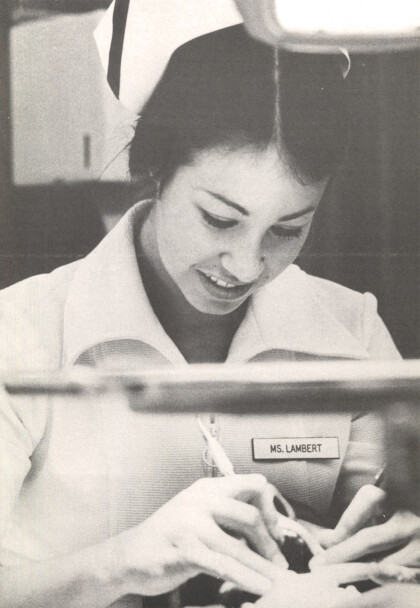
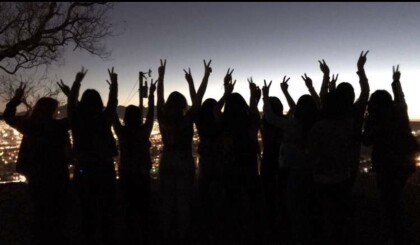
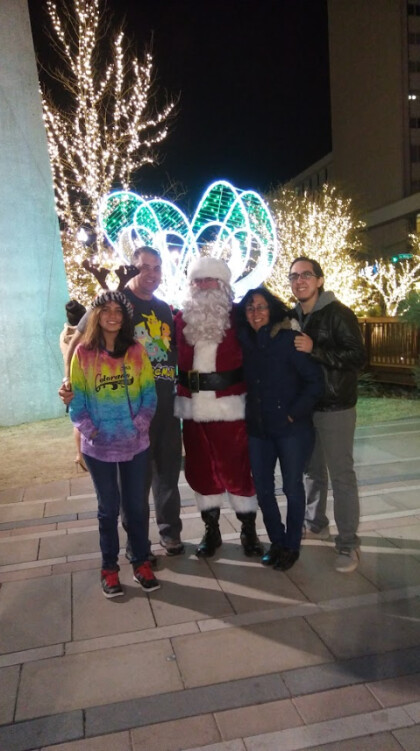



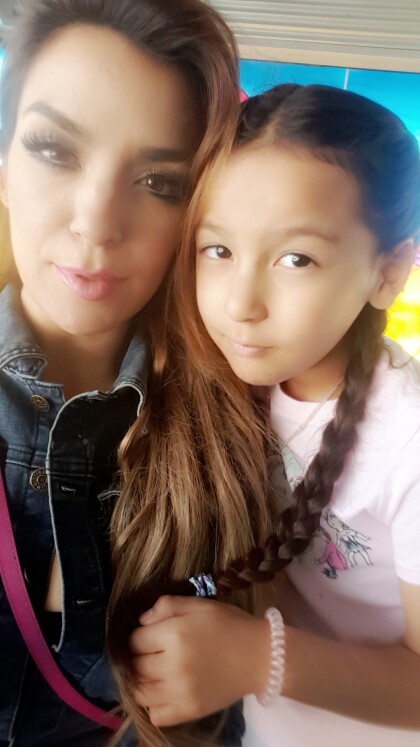
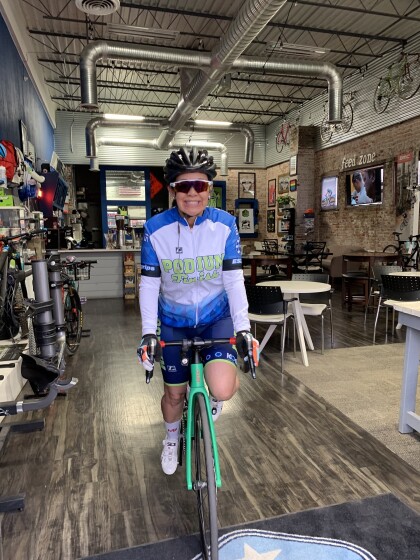


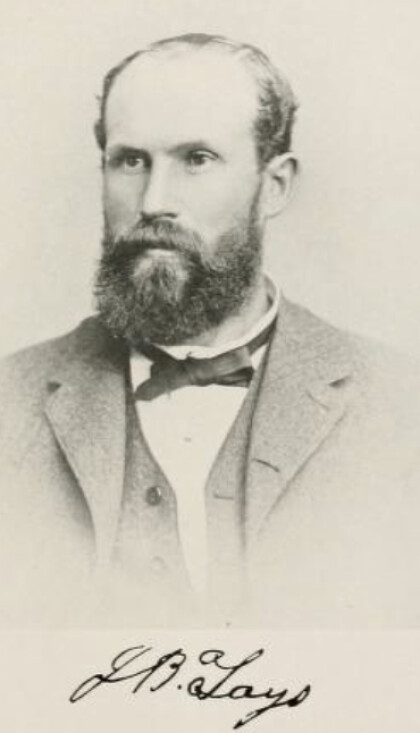


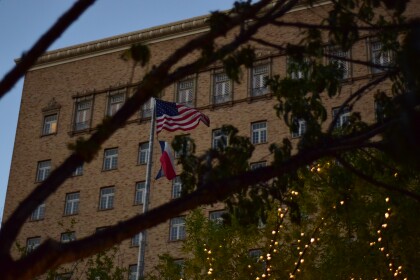
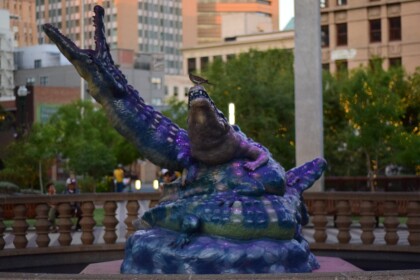

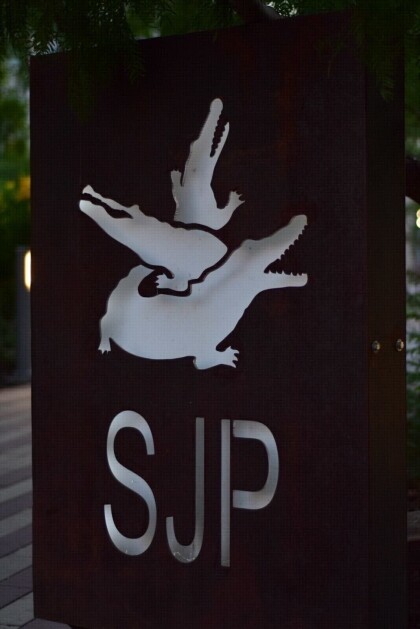

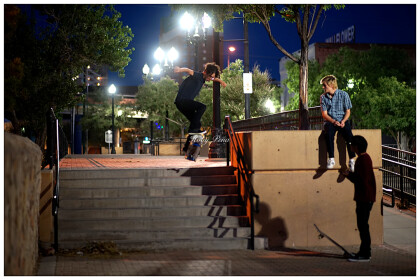

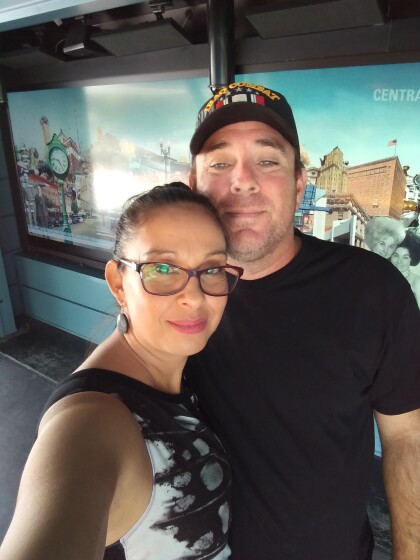

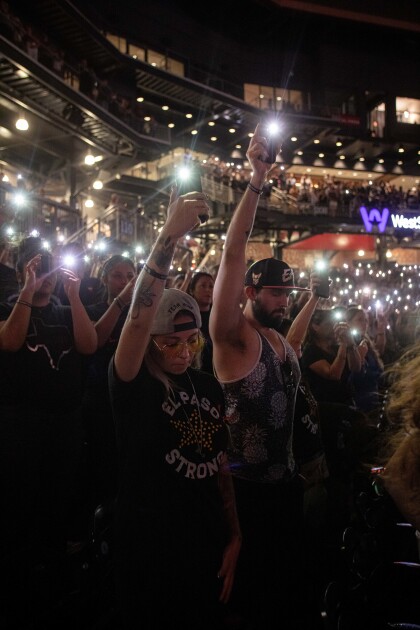
Comments
Add a comment